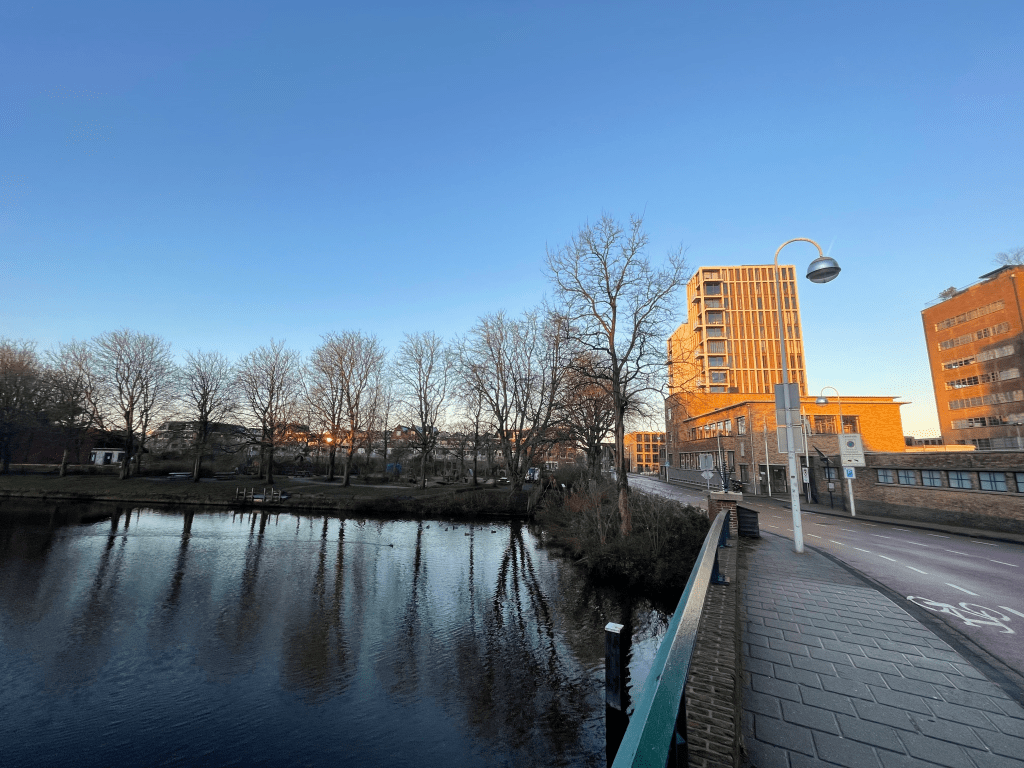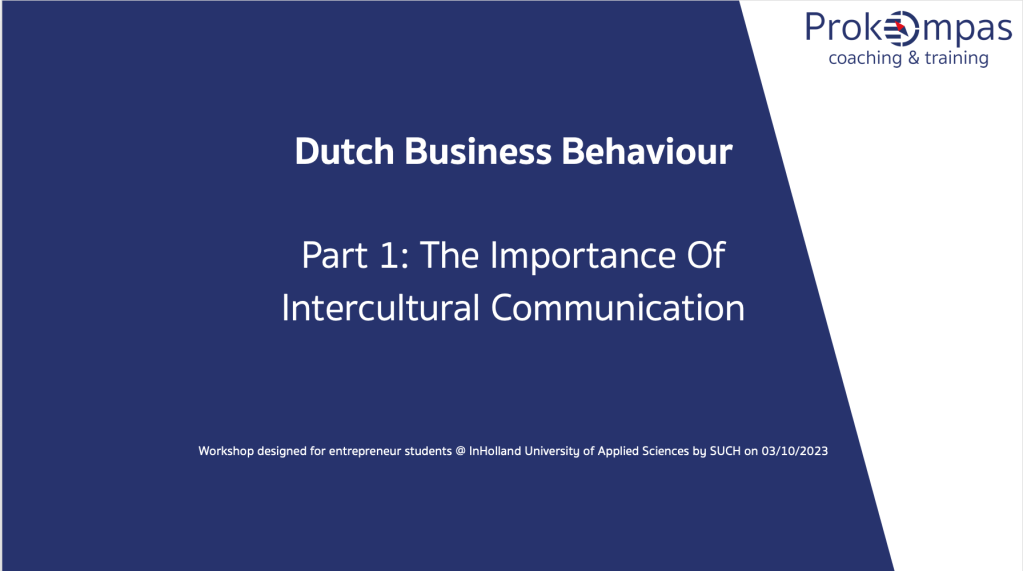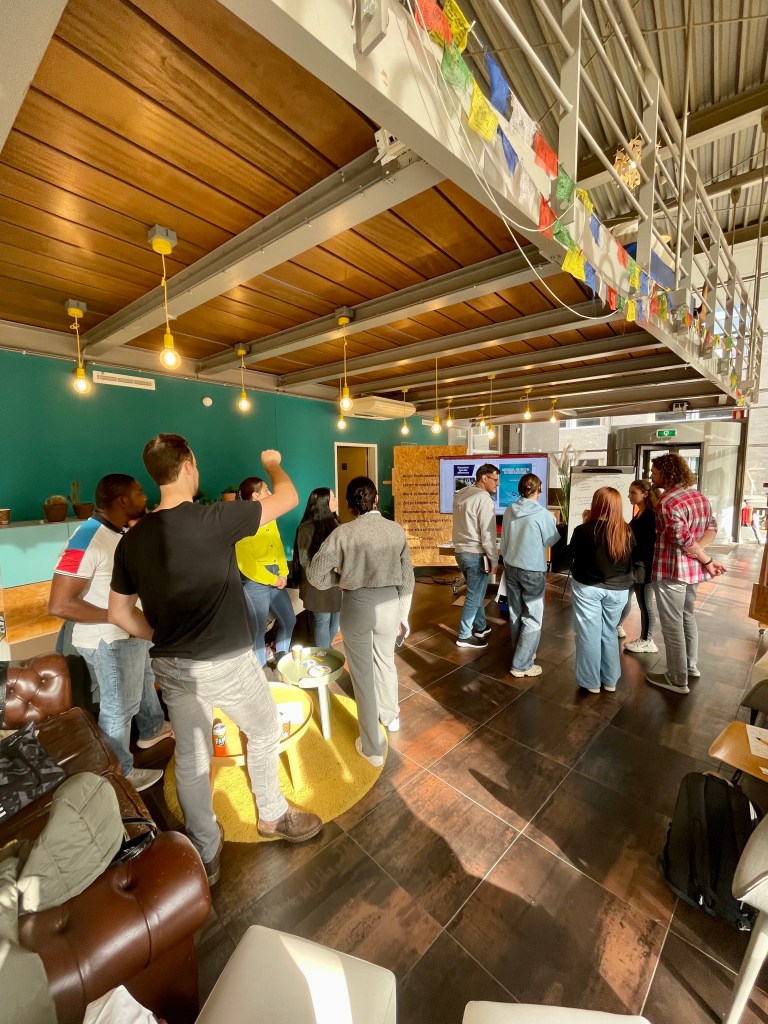08/03/2024
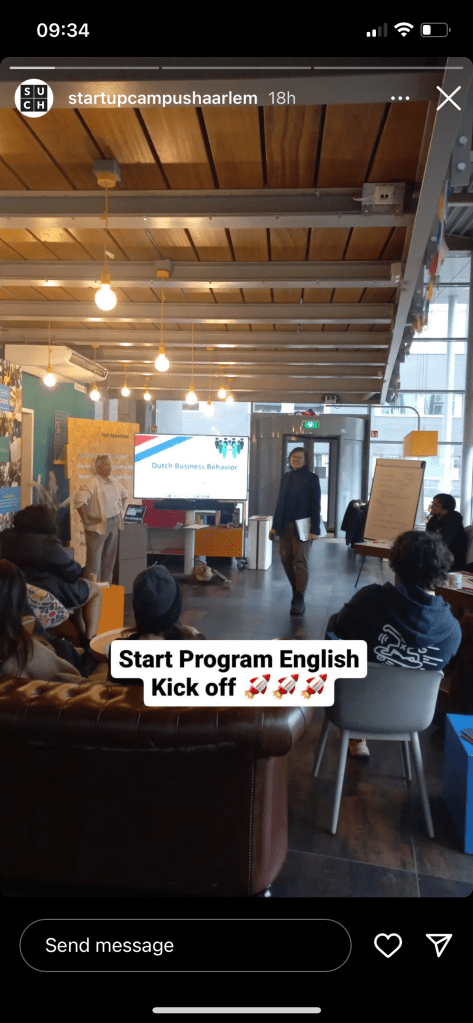
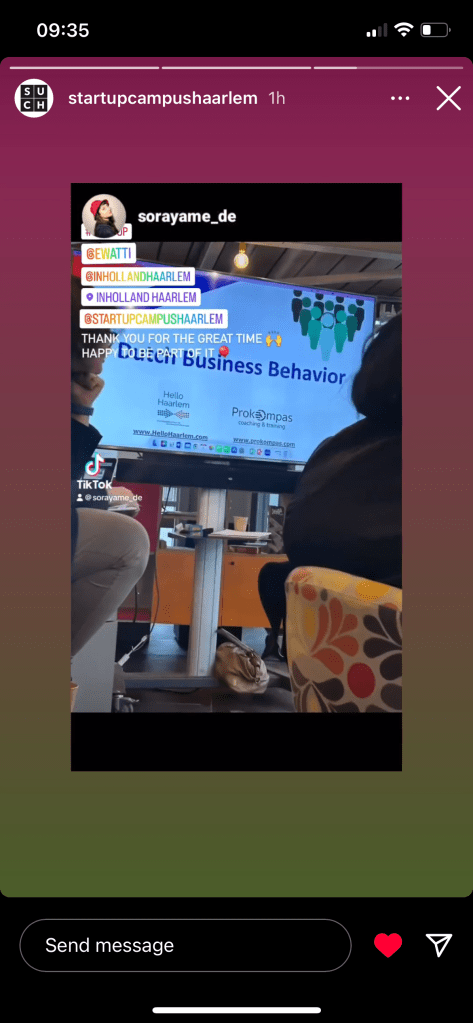
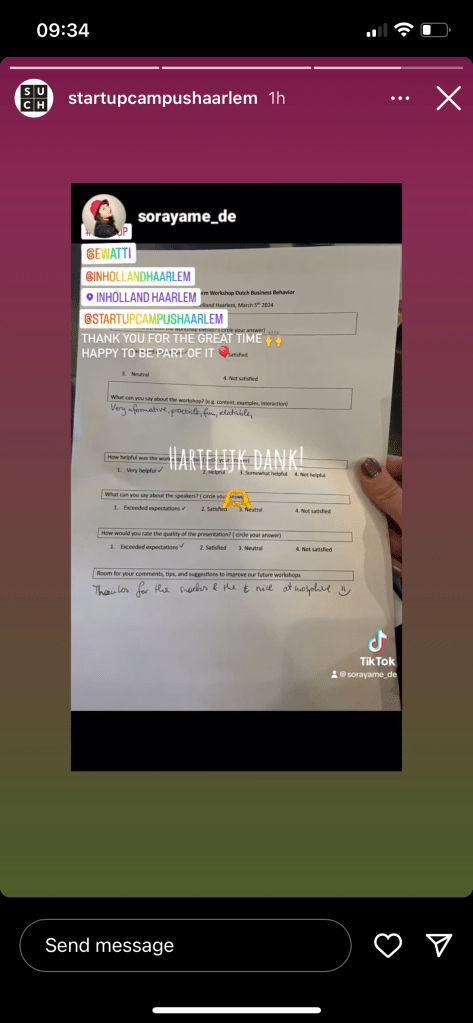
Do you know that there were almost 123,000 international students who attended higher education (HBO/WO) in the 2022/23 academic year in the Netherlands? This is according to the statistics by CBS.
As a trainer in Intercultural, DEI and English language, I’ve had given most of my trainings so far this year to professionals who came from Germany, Netherlands, Switzerland, Israel, Venezuela, US, China, Taiwan and Thailand. It has kept me busy and I have been loving them.
But when I was given the chance to collaborate again with Elsa Wattimurij from Hello Haarlem for our “Dutch Business Behaviour” workshop by Start Up Campus Haarlem for international business students at InHolland University of Applied Sciences – I jumped at it.
I think it has a lot to do with the fact that I was a former teacher and I truly believed in the potential of youths. After all, out of the 123,000 international students in the Netherlands:
- 93,410 are from Europe
- 21,130 from Asia
- 5,5260 from Americas
- 2,230 from Africa
- 160 from Oceania
- And 110 are stateless/unknown
Such statistics make my trainer heart flutter with excitement.
And the international students from our workshop do not disappoint as I interacted with cultures that I would not come across in my regular trainings such as Pakistan, Bangladesh, Nepal, St Maarten and Nigeria. And their youth made me smile with pitches like
“I have a hobby turned business now”
“I want to make an app that connects people on trains”
And my absolute favourite:
“I am a mix of couscous and pizzas!”
As a trainer, I believe that trainings should be a multiple learning street where my participants can learn from me, from each other and I, too, get to learn from them.
I wish all the students a wonderful start to them building their businesses in the Netherlands and may our paths cross again in the future!
Also, to the student who wants to build a bakery with lactose-free goodies? I am a customer-in-waiting 😉
For now, it’s back to my regular business and I wish everyone a wonderful weekend ahead.
All the pictures are from the Instagram of Start Up Campus Haarlem and Soraya de Memet – the woes of being a trainer and never being able to capture my own pictures during trainings! Thank you for capturing these!
————————-
To find out more about CBS’s 2023 International students’ statistics, click here: https://www.cbs.nl/nl-nl/nieuws/2023/36/internationale-student-volgt-vaker-wetenschappelijk-onderwijs
#netherlands #internationals #dutchbusinessbehaviour #intercultural
16/02/2024
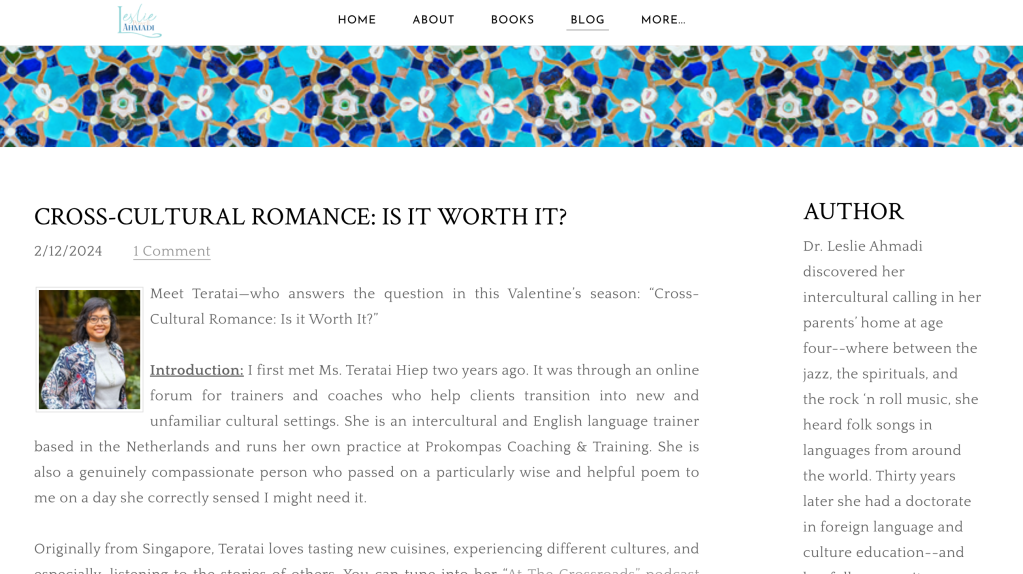
Despite the different trainings that I do in Intercultural, DEI and the English language here in the Netherlands or abroad, there is always one topic that keeps finding its way back to me:
The topic of Cross-cultural Romance or Intercultural Love
This is of no surprise as according to the 2023 survey by InterNations with over 12,000 expats, 1 in 10 expats (10%) moved abroad for love or to live in their partner’s home country.
For partners who are in such a situation, it can be tough-going at times and wonderful the next. And for family and friends watching from the outside, it could be a maze that is hard to understand.
As for me, it is a precious topic that I guard closely because it is such a private matter. It has been 15 years in the making.
So, I hope you’ll enjoy this rare piece that I have written in Dr Leslie Powell Ahmadi’s special newsletter for the recent Valentine’s Day where I answer to the question:
Cross-cultural Romance: Is It Worth It?
Thank you Leslie for featuring me. It is my privilege and it’s been wonderful collaborating with you. And I hope your readers enjoy it too!
To read the full article, head on down to: https://www.leslieahmadi.com/blog
With much love, I wish everyone a wonderful weekend ahead.
————————-
To find out more about InterNations 2023 survey on Expat Statistics, click here: https://www.internations.org/expat-insider/2023/survey-demographics-40359
#netherlands #internationals #singapore #intercultural #crossculturalromance #interculturallove #movingabroad
26/01/2024
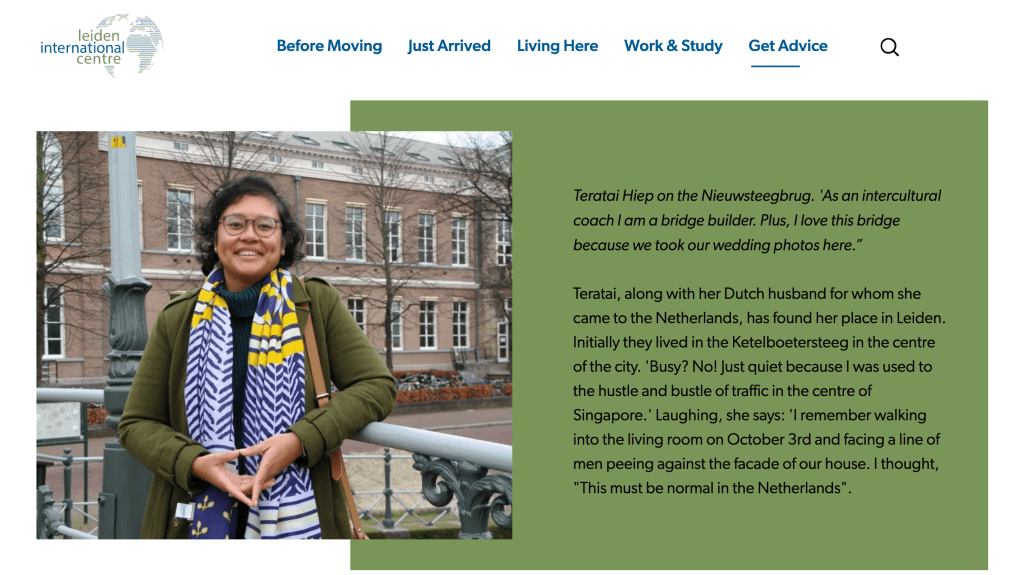
Thank you Leiden International Centre for sharing the interview that Leiden Municipality did with me!
As someone who moved from Singapore to Leiden, Netherlands, 6 years ago, I had resigned myself to being ‘invisible’ in my new home country. After all, I am not a native as I was back in my birth country.
But as an intercultural trainer now, I understand that embracing diversity and building bridges across different cultures involves moving the ‘unseen’ to being ‘seen’; of moving the needle of awareness to understanding and hopefully, towards acceptance.
According to CBS’s latest 2023 Netherlands figures, 257,000 people moved into the Netherlands last year. And these numbers are part of a growing trend, thus, impacting the makeup of the fabric of society.
So, work needs to be done to build bridges over time. There are no quick solutions to fostering acceptance but we can start by understanding each other’s stories.
My hope is that more stories of internationals get told as well as the stories of friendships between internationals and locals get featured too 🙂
Thank you for doing the work of building bridges Leiden Municipality & Leiden International Centre and also, for featuring this city girl from Singapore.
I wish everyone a wonderful weekend ahead.
————————-
For an extended version of the article, click here: https://www.leideninternationalcentre.nl/get-advice/blogs/at-home-in-leiden
To find out more about CBS’s 2023 Netherlands’ statistics, click here: https://www.cbs.nl/en-gb/news/2023/51/statistics-netherlands-reviews-the-year-2023
#netherlands #internationals #singapore #intercultural
12/01/2024
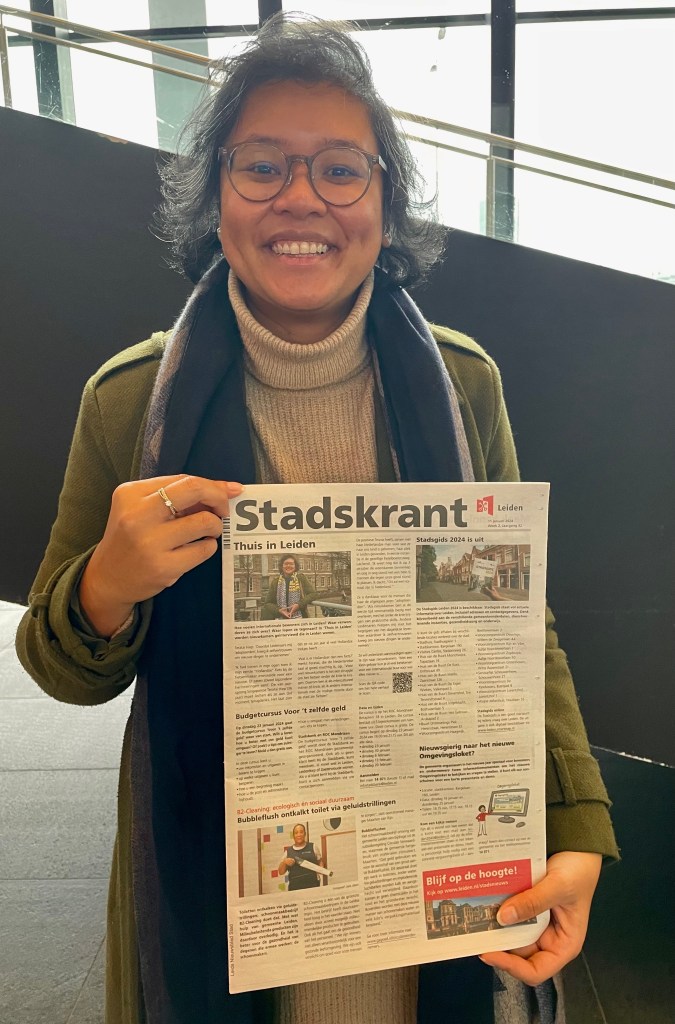
As an intercultural trainer, it is not often that I walk right into a newspaper stand with my face on it; when out and about for meetings in the Netherlands.
But that’s what happened yesterday and it couldn’t have started my year off any better!
According to the Leiden Municipality’s Internationalisation Monitor’s report in 2023, 13.1% of the residents in the city have foreign nationalities and 34.5% of us in Leiden have diverse, migration backgrounds. The numbers are rising and this may cause fear in some fractions of society but, in my line of work, we celebrate diversity and forge forward to build bridges.
So, here’s a big thank you to Leiden Municipality and their team for starting a new serie, Thuis in Leiden (At Home in Leiden), over the experiences of internationals in our beautiful city of Leiden and for having my story as their first feature in the Stadskrant 🙂
To support their work and this new serie, please follow the official account of Leiden Municipality on LinkedIn, FB or Insta
And to the Dutch family, friends and neighbours who have supported me in my migration and integration to and within the Netherlands (and also, for the sweet messages through texts, on my bicycle, letter box, front door etc since the newspaper article came out):
“Ook door jou voel ik me thuis in Leiden, dankjewel.”
(Because of you, I feel at home in Leiden, thank you.)
Here’s to building bridges together 🙂
I wish all of you a wonderful weekend too.
————————-
For the English version of the article, click here: https://www.linkedin.com/posts/gemeente-leiden_at-home-in-leiden-activity-7151173420875935744-XWc0?utm_source=share&utm_medium=member_desktop
To find out more about Leiden Municipality’s Internationalisation Monitor Report 2023, click here: chrome-extension://efaidnbmnnnibpcajpcglclefindmkaj/https://leidenkennisstad.nl/wp-content/uploads/2023/09/MonitorInternationalisering2023-5.pdf
Picture was taken at the Leiden Municipality building
#netherlands #internationals #singapore #intercultural
03/11/2023

As an intercultural trainer, I cannot emphasise enough on the challenges behind living, working and/or studying abroad especially in the Netherlands. Often, I do this through writing and citing statistics or recording stories through my podcast, At The Crossroads.
But during today’s stormy weather, I would like to share with you an important piece of poetry that I share with my clients and love ones who would eventually embark on their own, new journeys abroad. I hope you enjoy this:
Ithaka
By C.P. Cavafy
Translated by Edmund Keeley
As you set out for Ithaka
hope your road is a long one,
full of adventure, full of discovery,
Laistrygonians, Cyclops,
angry Poseidon – don’t be afraid of them:
you’ll never find things like that on your way
as long as you keep your thoughts raised high,
as long as a rare excitement
stirs your spirit and your body.
Laistrygonians, Cyclops,
wild Poseidon – you won’t encounter them
unless you bring them along inside your soul,
unless your soul sets them up in front of you.
Hope your road is a long one.
May there be many summer mornings when,
with what pleasure, what joy,
you enter harbors you’re seeing for the first time;
may you stop at Phoenician trading stations
to buy fine things,
mother of pearl and coral, amber and ebony,
sensual perfume of every kind —-
as many sensual perfumes as you can;
and may you visit many Egyptian cities
to learn and go on learning from their scholars.
Keep Ithaka always in your mind.
Arriving there is what you’re destined for.
But don’t hurry the journey at all.
Better if it lasts for years,
so you’re old by the time you reach the island,
wealthy with all you’ve gained on the way,
not expecting Ithaka to make you rich.
Ithaka gave you the marvelous journey.
Without her you wouldn’t have set out.
She has nothing left to give you now.
And if you find her poor, Ithaka won’t have fooled you.
Wise as you will have become, so full of experience,
you’ll have understood by then what these Ithakas mean.
I wish you a wonderful weekend ahead.
Picture was taken from Wassenaarse slag
#netherlands #expats #population #internationals
20/10/2023
A big thank you to Start Up Campus Haarlem & Iryna M’yakush for this speaker’s feature! I am delighted to be one of the speakers for their in-depth business programme with international students from the University of Applied Sciences who are embarking on their own entrepreneurship journey here in the Netherlands.
The experience brought me back to my teaching days in Singapore and to be amongst enthusiastic, young minds again – how exhilarating to be part of this meaningful project.
And as I have shared with the students
Entrepreneurship can sometimes be a lonely process especially
as an international here in the Netherlands who have yet to build your own network –
so don’t be afraid, go out and make connections.
You never know who can help and support you along the way!
#netherlands #interculturalcommunications #speaker #trainings #workshops
13/10/2023
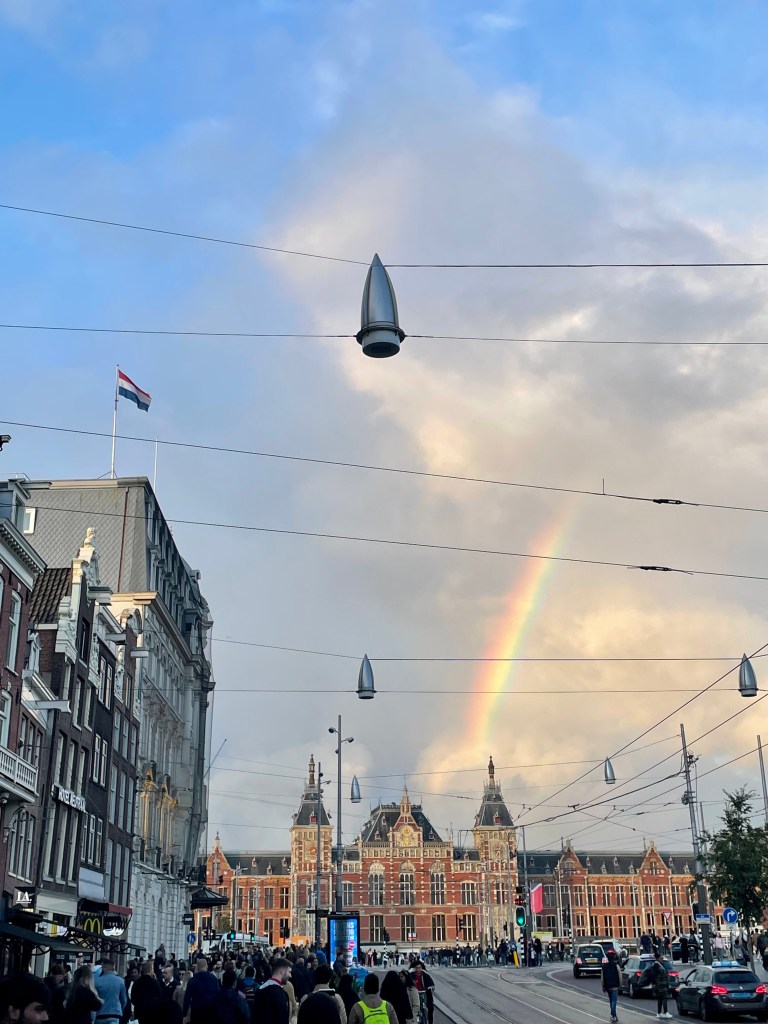
It is week 41 and the start to my forward planning of 2024 for Intercultural trainings and English language coaching. But before that,
Here is a small dedication to my clients and business partners who have taken me on and collaborated with me this year – I have really enjoyed 2023 with you so far and look forward to continuing on with our business relationships.
To future endeavours!
#netherlands #interculturalcommunications #esl #trainings #english #languages #workshops #coaching
06/10/2023
For us that moved abroad, we cannot have all the pieces of home physically with us all the time.
So, for me, after 6 years of being away, written words are what I carry and treasure most.
And the positive written feedback of the international students of InHolland University of Applied Sciences in this week’s training of ‘Dutch Business Behaviour” with Hello Haarlem are part of my ever-growing treasures now. Here is one of them.
Thank you Start Up Campus Haarlem (SUCH) for letting me be part of your programme and Elsa for being a wonderful partner in this. And to all the international students I met, all the best for your business development! Till we meet again!
Feedback in picture:
Teratai’s workshop was amazing! The information was very practical and everything was very balanced. Amazing work! Congrats! Also, you had a very charismatic attitude, which was great for making us pay attention. For both experts, great job!!! ❤
#netherlands #university #hbo #workshops #trainings #internationalstudents #interculturalcommunications
29/09/2023

To the international students of InHolland Hogeschool all over the Netherlands, Elsa from @HelloHaarlem and myself are excited to meet you next week at the Start Up Campus Holland (SUCH)!
In our training “Dutch Business Behaviour”, we’ll take a dive into the importance of intercultural communications and how your own cultures and backgrounds can be a springboard to starting your businesses here in the Netherlands.
Within a safe environment, you’ll get plenty of time to interact with one another and importantly, apply your learnings on how to navigate the Dutch business landscape.
And as a bonus, you’ll get a first-hand look of what a collaboration between a Dutch business owner and an international one looks like during the session itself 😉
So, get ready and we’ll see you next Tuesday, everyone!
#netherlands #university #hbo #population #trainings #internationalstudents
15/09/2023
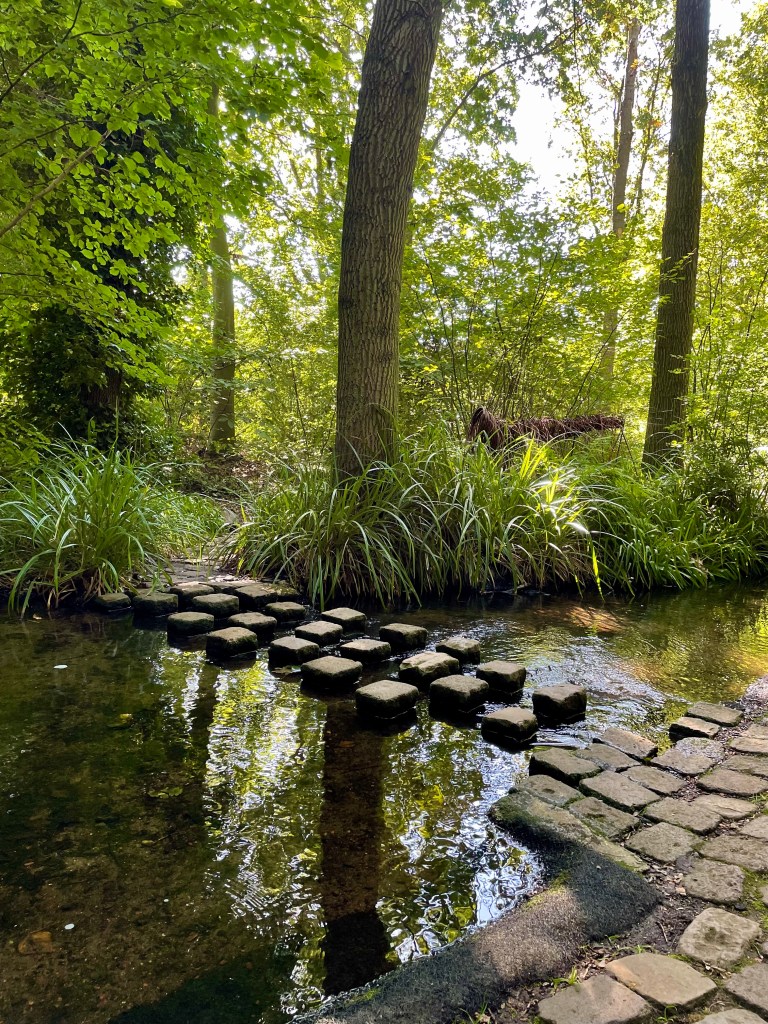
Two weeks ago, I wrote a post about the high number of international students staying on in the Netherlands after their studies. This week, that became a hot topic in the national news.
The Central Bureau of Statistics (CBS) did a study on the 2018-19 cohort and found that 32% of them landed a job in the Netherlands a year later, thus, increasing the likelihood of them staying on in the country and contributing to the economy.
This is important to the Netherlands due to the tight labour market and shortages of manpower in sectors like IT and technology.
As an intercultural trainer, I know that it takes a lot more than just landing a job and learning the local language for international students to want to stay on longer as cited in the news article.
Bridging the cultural gap that international students have with the locals through intercultural trainings is also important in helping them want to stay longer in this country. Afterall, wouldn’t we want to stay if we understand how to navigate around the local (work/business and social) culture and made to feel welcomed?
Wang Yibing, a Chinese student who found work, touched on the many positives found in the Netherlands such as the flat work hierarchy and high level of English but also spoke about the little support she received in finding a job in her ‘search year’ (zoekjaar – students from outside the European Union given the chance to look for a job for a year) and her anecdote of describing the Dutch ‘are like coconuts: hard on the outside and soft on the inside’ is a revealing tell of the type of differences she encountered.
There are intercultural struggles for international students when they come to study and eventually (and hopefully!) work and live in a new country such as the Netherlands. And I am happy to support them in their journeys in my upcoming training.
I hope you’ve found this #dutchstats useful and I wish you a wonderful weekend ahead!
If you would like to know more about the topic, here is the news link (in Dutch): https://nos.nl/artikel/2490283-meer-internationale-studenten-blijven-na-hun-studie-in-nederland-werken
#netherlands #university #population #statistics #dutchfacts #dutchstats #internationalstudents
08/09/2023
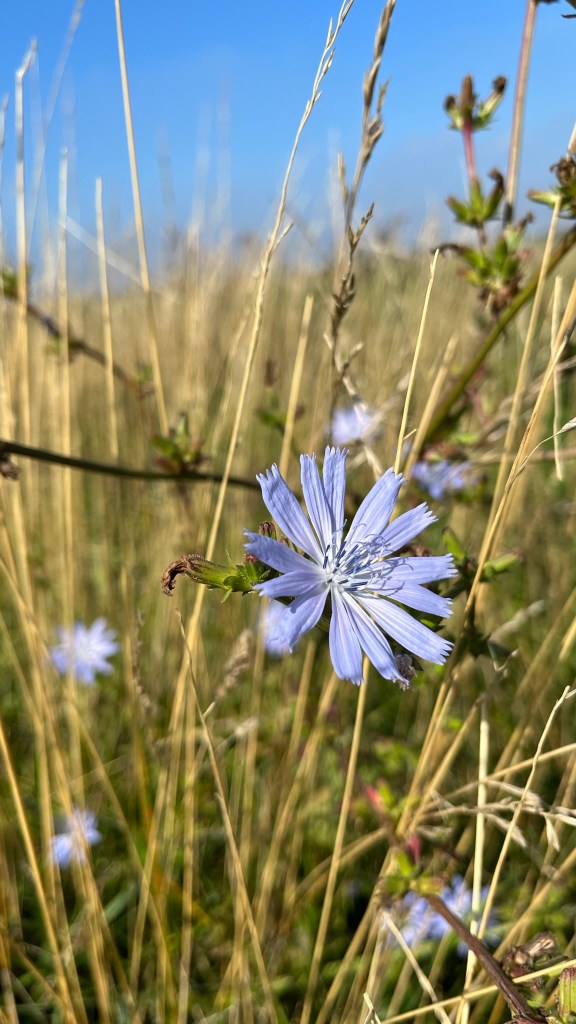
Did you know that about 17% of the 123,000 international students in the Netherlands come from Asia?
This is according to the latest study by the Central Bureau of Statistics (CBS) on the current 2022/23 cohort.
Here’s the quick breakdown of which continents these internationals students come from:
- 93,410 – Europe
- 21,130 – Asia
- 5,260 – Americas
- 2,230 – Africa
- 160 – Oceania
- 110 – Unknown
It is no surprise that Europe come out tops being where the Netherlands geographically is but the sizeable percentage from Asia is not a piece of statistics to be ignored. It confirms the other statistics that I have been seeing and clearly implies on the ever-growing diversity in the country’s population.
In fact, these statistics of ever-growing international students here in the Netherlands have been increasing steadily. 10 years ago, there were 55, 570 in the 2012/13 cohort and this number has more than doubled today.
As an intercultural trainer, seeing this colourful set of data is exciting as it meant that there are enormous intercultural opportunities to be had and to be learnt from. Imagine, the varying threads of new stories and experiences from and for these young minds!
But I also understand that new adventures in a new country also mean challenges not only for the new international students trying to navigate their new lives here in the Netherlands but also, for the local universities that are doing what they can to help their new cohort.
And, I look forward to hearing from them and also be there for them at my intercultural trainings!
I hope you’ve found this #dutchstats useful and I wish you a wonderful weekend ahead!
If you would like to know more about the stats, here is the link (in Dutch): https://www.cbs.nl/nl-nl/nieuws/2023/36/internationale-student-volgt-vaker-wetenschappelijk-onderwijs
Picture was taken from the Nieuwe Driemanspolder, Zoetermeer
#netherlands #university #population #statistics #dutchfacts #dutchstats #internationalstudents
01/09/2023

Did you know that 46% of the international graduates still live in the Netherlands ONE year after graduation?
This is according to a study by nuffic.nl on almost 139,000 international students who graduated from the Dutch higher education between 2006-7 and 2015-16.
What is even more interesting is that the stayrate of international graduates from EEA and non-EEA differs greatly after FIVE years.
How different can they be? Here’s a very quick #dutchstats
After 5 years,
- 19% % of EEA international graduates will stay on in the Netherlands
while
- 38% of non-EEA international graduates will stay on in the Netherlands
That’s a big whopping difference!
There are many explanations behind this such as the freedom to work, live and study in the region afforded to EEA international graduates, the relative attractiveness of the Dutch labour market for non-EEA and the higher probability of non-EEA to take on even higher education such as a Master’s degree in the Netherlands and so.
To me, as intercultural trainer and someone from the non-EEA, this means that the we should support the international students, especially the non-EEA ones, in navigating through the work, business and life here in the Netherlands. Afterall, they are likely to stay.
And I am looking forward to doing my part in supporting the newly international business students together with Elsa Wattimurij at our Hello Haarlem x Prokompas Coaching & Training upcoming workshop on Intercultural Communications and Dutch Business Behaviour at the Start Up Campus Haarlem in October!
I hope you’ve found this #dutchstats useful and I wish you a wonderful weekend ahead!
If you would like to know more about the stats, here is the link to the nuffic study (in Dutch): https://www.nuffic.nl/sites/default/files/2022-05/Stayrate%20en%20arbeidsmarktpositie%20van%20internationale%20afgestudeerden%20in%20Nederland.pdf
*EEA – European Economic Area: all EU countries including Liechtenstein, Norway and Iceland
Picture is of the Teyler’s Museum in Haarlem
#netherlands #university #population #statistics #dutchfacts #dutchstats #internationalstudents
25/08/2023
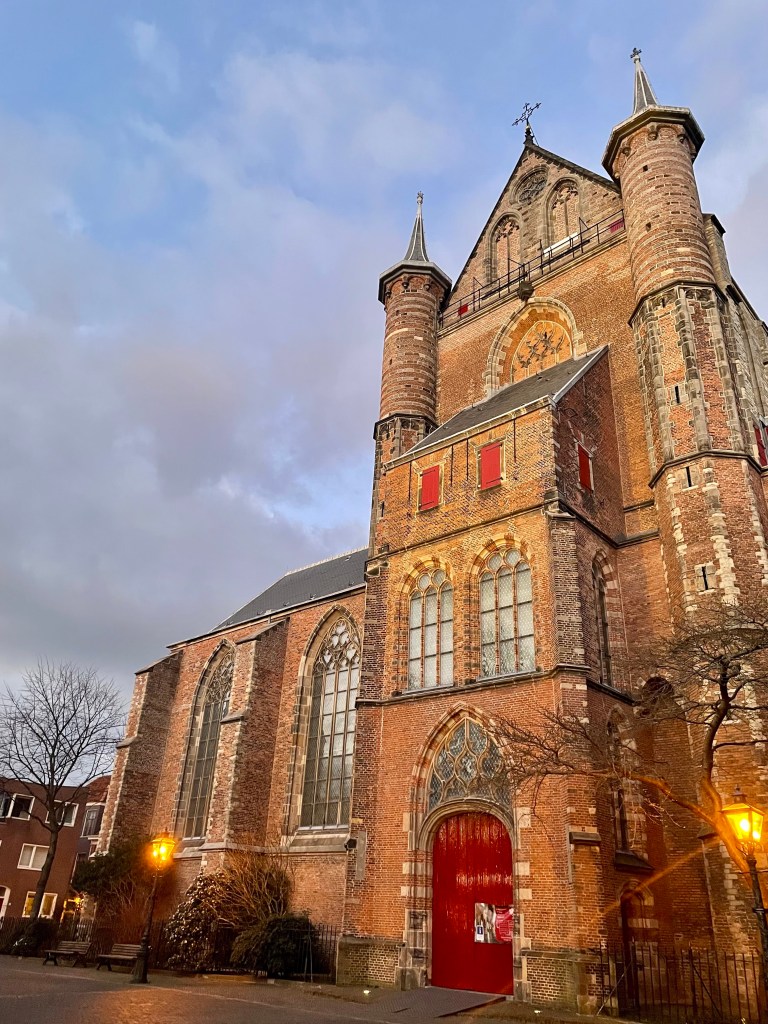
Did you know that 18.4% of the student population in the University of Leiden are international students?
This is a big jump from a mere 3.8% in 2006, according to the Internationalisation Monitoring 2022 report by the Leiden Municipality! And this trend almost parallels with the national average of international students in the Netherlands.
Often, when we read about the expatriate or internationals journey, we may focus on certain segments such as the knowledge workers, labour migrants, asylum seekers etc in the Netherlands. But, the stories of international students also deserve a spotlight.
And in my beloved city of Leiden, the university students will be having their orientation week next week between 28th August to 1st September! The sounds of youths happily cruising around our beautiful canals with music playing aloud as well as observing new international students in the city trying to master cycling around our meandering streets; makes my little intercultural trainer’s heart smile.
So, what’s the stats on the international students here in Leiden?
According to the 2022 report, majority of them hail from Europe with China making a surprising entry in the top 5 spots.
- Germany: 740 (Bachelors), 499 (Masters)
- Italy: 354 (B), 224 (M)
- France: 297 (B) & 120 (M)
- Spanish: 153 (B) & 129 (M)
- China: 87 (B) & 177 (M)
The rest of the stats would include Greece, UK, Poland, Belgium, Romania, Finland, US, Ireland, Bulgaria, Hungary and Turkey.
I bid welcome to all new international students in Leiden and as well as in other parts of the Netherlands!
Hope you’ve found this #dutchstats useful. I wish you a wonderful weekend ahead!
If you would like to know more the stats, here is the link: https://leiden.buurtmonitor.nl/Onderzoeksbank/–Bevolking-en-huishoudens
And if you are curious of the orientation week at Leiden university, here is the link: https://orientationweek.org/summer-owl/
#netherlands #university #population #statistics #dutchfacts #dutchstats #Leiden
18/08/2023
Did you know that 10% of expats moved abroad for love or to live in their partner’s home country?
This is according to the survey conducted by InterNations in 2023 with 12,065 expats from 171 nationalities and living in 172 countries/territories. The other top 2 reasons of expats moving abroad are: found a job on my own (15%) and recruited internationally (10%)
Moving abroad for love is a story I relate well as it is a recurring theme among expats and internationals. And so today, I bring you the wonderful story of Heenah Pokun
At The Crossroads – Episode 8 – With Love, From London to Leiden
Heenah is an illustrator and graphic designer from London who started her own business in the Netherlands.
After experiencing a long-distance relationship between the UK and the Netherlands, she made the plunge and moved to be with her Dutch husband and her adventures began!
From small-town living in Schagen, to becoming a university student in Amsterdam, to moving to the city of Leiden and registering her business at the KVK (Dutch Chamber of Commerce) – all these in the last 5 years of living in the Netherlands.
She also shared about the difficulty as a non-drinker in joining borrel (an informal gathering of colleagues after work in the Netherlands!), overcoming social anxiety when living abroad and as a Muslim, of being able to practise Eid and Ramadan in the Netherlands.
For all viewers, I hope you enjoy this video and bon zurné (have a good day)!
You can find Heenah and her works at @heenahpokun on instagram and at www.heenahpokun.com
To see previous episodes of At The Crossroads, click on https://prokompas.com/video-series/
#intercultural #storytelling #longdistance #UK #netherlands #abroad #internationals #expats #dutch #Leiden
11/08/2023

Did you know that nearly 15% of the Dutch population were born in a foreign country?
A study by the Central Bureau of Statistics showed that as of 1 January 2022, 2.6 million people were born abroad and had come to the Netherlands as migrants. The rest of the 15.0 million residents were born in the Netherlands.
Here’s the quick breakdown of the stats:
- 14.5% at 2.6 million were born abroad
- 74.0% at 13 million were persons born in the Netherlands with both parents who are Netherlands-born
- 6.4% at 1.1 million were persons born in the Netherlands with one parent Netherlands-born and the other parent foreign-born
- 5.2% at 910, 000 were persons born in the Netherlands with both parents born abroad
As someone who grew up in Singapore and moved to the Netherlands in 2017, I am part of this statistics.
As an Intercultural and English Language Trainer here, I cannot help but be both intrigued and excited by them because it points to an ever-evolving cross-cultural aspect of the country.
Underneath these statistics are worthy stories filled with varying sorts of significant cross-cultural dimensions in both adulthood and childhood experiences. And how wonderful would it be to find out about them.
Are you part of the story too?
Hope you’ve found this #dutchstats useful. I wish you a wonderful weekend ahead!
If you would like to know more the stats, here is the link: https://www.cbs.nl/nl-nl/dossier/dossier-asiel-migratie-en-integratie/hoeveel-inwoners-hebben-een-herkomst-buiten-nederland
#netherlands #migrants #population #statistics #work #dutchfacts #dutchstats
04/08/2023

Did you know that the majority of the non-EU/EFTA* labour migrants in the Netherlands are male knowledge migrants who are under the age of 40?
As an Intercultural and English Language Trainer, these statistics did not surprise me through my interactions with locals and expats, but I have always been keen to know more of the facts and figures!
According to the Central Bureau Statistics, there were 87 000 non-EU/EFTA labour migrants residing in the Netherlands by the end of 2021. And out of this group, 71% of them are men and 67% of them are under the age of 40. A little over than half of the labour migrants are from Asia (Hello, I am from Singapore!)
Here is a quick breakdown of the migration schemes that the non-EU/EFTA labour migrants (both men and women) were on, as of 31 Dec 2021:
- 46% of them are part of the Highly-skilled migrant scheme. These are highly-educated workers who are recruited by Dutch employers.
- 11% of them are part of a scheme for scientific researchers belonging to recognised research institutes in the Netherlands
- 7% of them are part of the ICT (Intra-Corporate Transferee) scheme where they were transferred within a company established outside the EU/EFTA to a branch in the Netherlands.
- 36% are part of Other schemes – this is intriguing to me.
And no surprise again, close to a quarter of this labour migrants work in the business services sector at 24% (see my previous post below on working population in the Netherlands) and a majority of them resides in Amstelveen.
But that’s another #dutchstats for the next time! Hope you’ve found this useful.
Have a wonderful weekend ahead, everyone!
If you would like to know more the stats, here is the link: https://www.cbs.nl/nl-nl/nieuws/2023/27/arbeidsmigrant-van-buiten-de-eu-vaak-een-mannelijke-kennismigrant
*EFTA stands for European Free Trade Association and has 4 member states: Iceland, Liechtenstein, Norway and Switzerland. And naturally, EU stands for the European Union and has 27 member states. A list of the 27 countries can be found here: https://www.netherlandsandyou.nl/documents/frequently-asked-questions/eu-eea-efta-and-schengen-countries
#netherlands #industries #labourmigrants #population #statistics #work #dutchfacts #dutchstats
27/06/2023
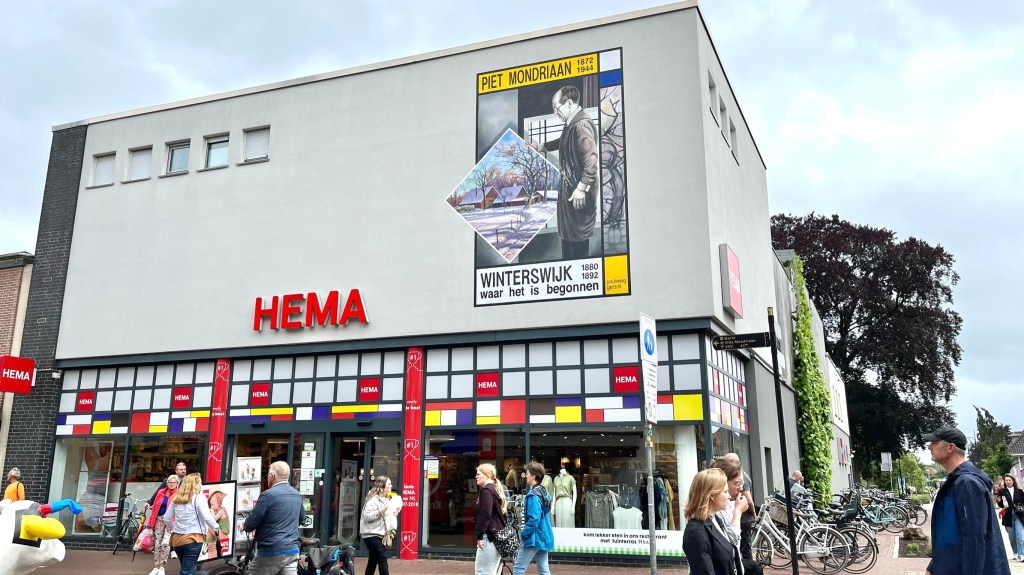
Did you know that more than half of the working population in the Netherlands are employed in the commercial services industry?
Understanding the demographics of the working population in this country is an endeavour that I undertake seriously as an intercultural and English language trainer in the Netherlands. Knowing about this matter also clearly satisfies the curiousity in me!
According to the Central Bureau Statistics (CBS), 56% of the working population in this country is employed in the commercial services industry. This comprises of sectors like
- business services,
- trade,
- accommodation and food services,
- culture, sports and recreation,
- transportation and storage,
- information and communication,
- financial services and
- real estate sectors
Based on the 2021 statistics of 9.8 million working population, that would account for an estimated 5.48 million working in the commercial services industry!
And, by very clear margins, most are working in the business services (about 1.9 million) and trade sectors (about 1.5 million). This would imply a great demand in these sectors – job-seekers, take note!
More than a quarter of the working population at 28% work in the public services industry and are in the sectors of healthcare and welfare, education and public administration and government.
And lastly, 16% of the working population works in the goods production industry. This would include sectors such as manufacturing, construction, agriculture, forestry and fishing and others.
Hopefully, this is as interesting to you as it is to me!
If you would like to know more the stats, here is the link:
https://longreads.cbs.nl/nederland-in-cijfers-2022/waar-werken-de-meeste-mensen/
Wishing everyone wonderful days ahead and till the next #dutchstats!
#netherlands #industries #population #statistics #work #dutchfacts #dutchstats
21/07/2023
According to the Central Bureau Statistics (CBS) in the Netherlands, there are more than 2.1 million businesses in the country at the start of 2023, a jump of 79 thousand more than the previous year and double the amount in the year of 2008. Impressive.
It is safe to conclude that the population of entrepreneurs in the country is growing rapidly!
I have always been curious on the stories of internationals in the entrepreneurial scene and so, I am proud to present my next episode
At The Crossroads – Episode 7 – From a suitcase to a container: Singapore to the Netherlands
My guest is Amy Picanço, the managing director of Aym Design, an interior architectural firm. She hailed from Brighton UK, moved to Singapore and set up her thriving business and now, she is expanding into the Netherlands.
She candidly talks about her run-ins with the work culture in Singapore and quickly adapting to Singlish (Singapore-English), how COVID impacted her choice to move, and now, understanding the Dutch perspective behind designing spaces in the Netherlands.
And with the birth of her newborn in the Netherlands, she shares her experience of being surprised by her Dutch neighbours’ putting up home outdoor decorations or geboorte versiering at her doorstep and eating special treats or beschuit met muisjes – surprising but lovely gestures!
For all viewers, I hope you enjoy this video!
You can find Amy and her works at @aymdesign on instagram and at www.aymdesign.com
To see previous episodes of At The Crossroads, click on https://prokompas.com/video-series/
For more information on the CBS figures, read the Dutch stats at https://www.cbs.nl/nl-nl/nieuws/2023/06/aantal-bedrijven-blijft-toenemen
#intercultural #storytelling #culturaldifferences #singapore #UK #netherlands #abroad #internationals #expats #dutch
—————
At The Crossroads is a serie that seeks to promote diversity and capture the experiences of internationals who moved countries as well as locals in The Netherlands. Many of us may have different ideas of what it is like to uproot oneself or what it is like to live, work, study or have businesses in The Netherlands, so it is time to hear their rich and unique stories from them.
23/06/2023
Sometimes, it is important to admit that there are just some things that you don’t or can’t really know fully, no matter how much you try scouring through literature and data.
And for me, I didn’t know much about the Curaçao and Suriname cultures. This general lack of understanding is common in the Netherlands as this recent Dutch newspaper reporting writes on the lack of awareness about the Caribbean islands, despite being part of the country’s history for so long https://www.nu.nl/algemeen/6249220/te-weinig-kennis-over-caribisch-nederland-suriname-en-curacao-niet-hetzelfde.html
As an intercultural trainer, I hold true to my Malay upbringing and proverb “Tak kenal, maka tak cinta” – translated loosely to “If you don’t try to understand it, how can you start to love it?”
With that said, I present to you my new episode of At The Crossroads
At The Crossroads – Episode 6 – The love language of Curacao and Suriname
My guest is Arlette Chatlein, who is Dutch with Curaçao and Suriname background.
She shares with us about growing up in Curaçao where both the cultures of Curacao and Suriname played important roles in her childhood, of moving to the Netherlands for school and the challenges that she had to overcome in living abroad. We, of course, discussed our love for food, the many languages spoken in Curaçao and the important cultural events of Seú and Day of Tula.
For all viewers, I hope you enjoy this video and that it be as much as an eye-opener for you as it was for me!
Now, where can I go to eat some jambo and BB met rijst?
For more episodes of At The Crossroads, click on the video series tab at the top of the page!
#intercultural #storytelling #culturaldifferences #netherlands #curaçao #suriname #dutch #singapore #abroad #internationals #expats #malay
16/06/2023
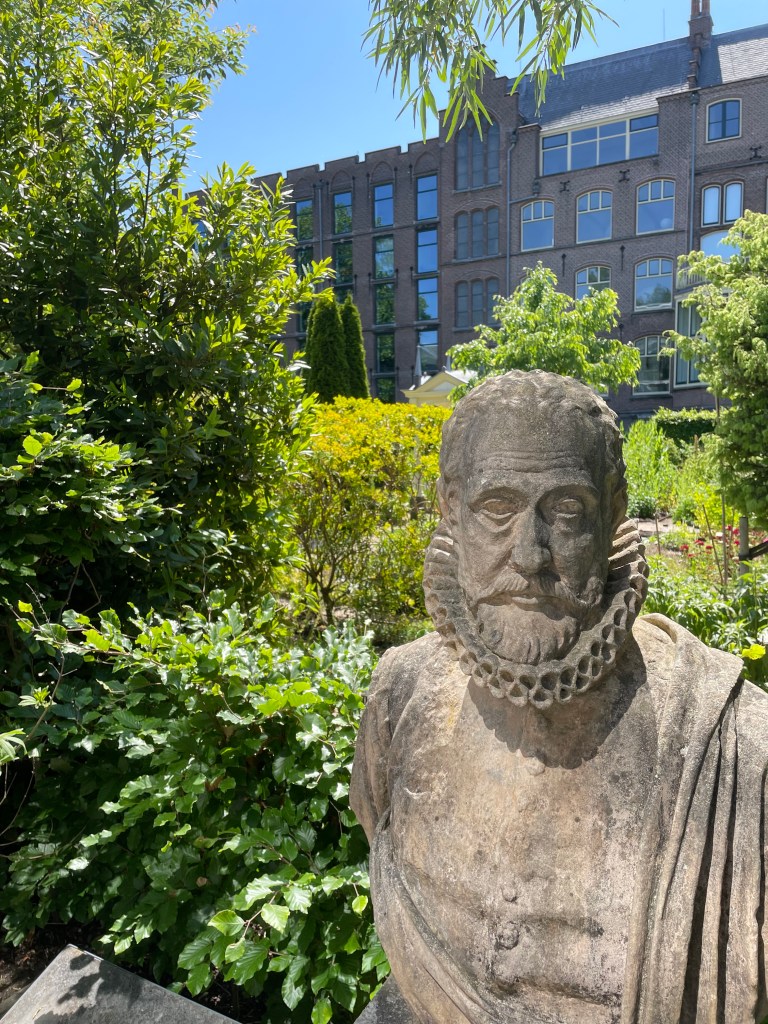
As an intercultural trainer, I have always believed in languages being one of the main access points to learning about cultures. And so, since moving to the Netherlands, I have dedicated a part of my life to learning Dutch (Lekker hoor!)
Now, with that said, we may be tempted to assume that the Dutch speak Dutch at home.
However, my recent nosing around statistics and data revealed that there actually is a diversity of languages and dialects spoken by the people of the Netherlands, and not just Dutch, when they are at home!
According to the CBS (Central Bureau of Statistics) study done in 2019, 1/3 of the population speaks altogether a different language at home while 3 /4 of them speak mainly Dutch. Not surprising that the majority are speaking Dutch, but what are these other languages that the other 1/3 are using?
It can be a dialect, a regional language such as Frisian (Fries), Limburgish (Limburgs) or Lower Saxon (Nedersaksisch) or another language altogether such as English, Turkish, Moroccan Arabic/Berber, Chinese/Mandarin and Polish.
The regions with the highest levels of spoken Dutch at home also seem to be the places where there are higher percentages of Other languages spoken at home. Like,
South Holland (eg cities like Leiden, the Hague, Rotterdam): 86.4% of spoken Dutch at home and 12.3% of Other languages
North Holland (eg Amsterdam and Haarlem): 84.9% vs 11.1%
Flevoland (eg Lelystad and Almere): 86.5% vs 10.7%
Utrecht has the highest level of spoken Dutch at home at 91.2% while 5.5% speak Other languages.
But what interests me the most are the usage of Dutch vs regional languages at home.
Limburg: 47.9% speaks Limburgish.
Fryslân: 39.6% Frisian
Drenthe (31.3%), Groningen (25.5%), Overijssel (23.6%) for Lower Saxon.
After living in Leiden for the last six years and learning Dutch, I believe it is time for me to make new acquaintances from different regions!
Do you speak a regional language? If so, what are some useful words that I should learn?
If you would like to know more about this issue and can read Dutch, here is the link:
https://longreads.cbs.nl/nederland-in-cijfers-2022/wat-spreken-mensen-thuis-vooral/
And if you are interested in the study itself: https://www.cbs.nl/nl-nl/longread/statistische-trends/2021/talen-en-dialecten-in-nederland
Wishing everyone a wonderful weekend ahead!
#netherlands #languages #dutch #internationals #population #statistics #expats #intercultural #cultural
09/06/2023
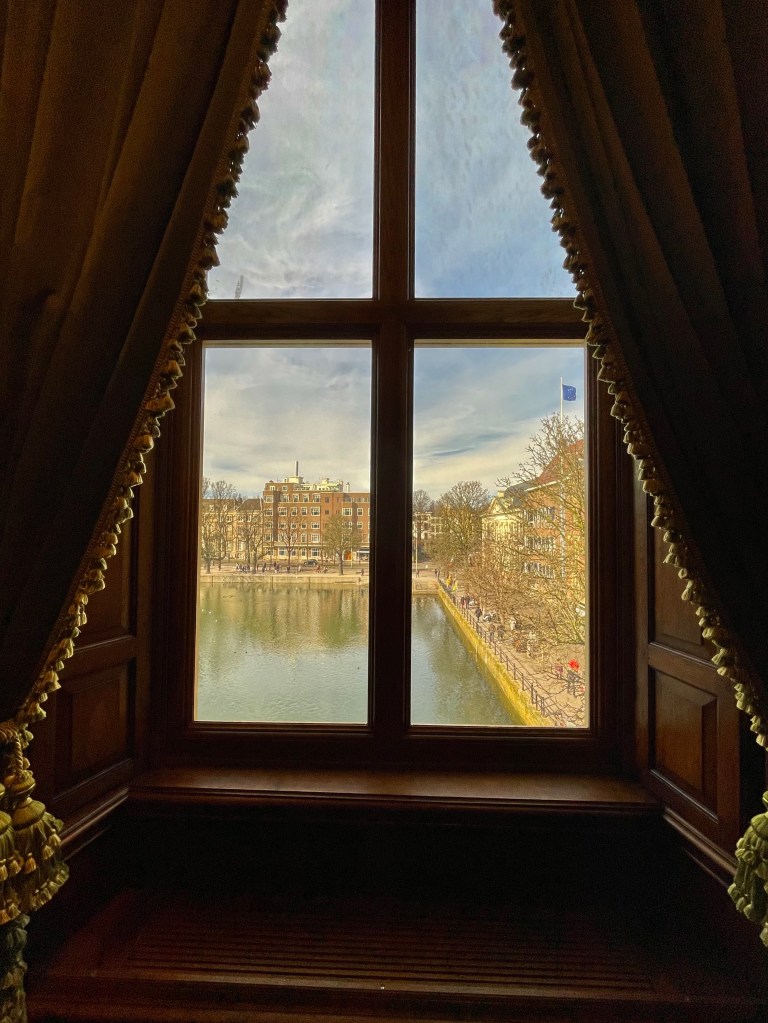
In 2017, I moved from Singapore to the Netherlands to join my Dutch husband and since then, I have been curious of the reasons to why others have also immigrated to the Netherlands. Now, as an intercultural trainer, that information has become essential to my work with internationals.
According to CBS (Statistics Netherlands) in their 2020 population study, there are many reasons behind immigrants making their move to this country and they can be largely divided into two groups: immigrants from within the EU/EFTA* and non-EU/EFTA*.
For immigrants within the EU/EFTA, Labour (35,040) was the most common motive, followed by Family (29,940), Education (18,985) and then, Other and Unknown reasons (25,105).
In contrast, for immigrants within non-EU/EFTA, Family (21,350) played the most common reason, followed by Education (12,950), Asylum (12,310), Labour (11,645) and then, Other (3,385) reasons.
Statistics such as these may come across mundane, but, they play an important role in how we can understand and adapt in assisting the different groups of internationals here in this country.
And as the statistics would show, my reason for moving to the Netherlands indeed fell under the Family category for non-EU/EFTA grouping. 6 years on, I am still here.
Have you moved to The Netherlands? If so, what were your reason(s) for doing so?
If you would like to know more about this issue and can read Dutch, here is the link: https://www.cbs.nl/nl-nl/dossier/dossier-asiel-migratie-en-integratie/hoeveel-immigranten-komen-naar-nederland
*EFTA stands for European Free Trade Association and has 4 member states: Iceland, Liechtenstein, Norway and Switzerland. And naturally, EU stands for the European Union and has 27 member states. A list of the 27 countries can be found here: https://www.netherlandsandyou.nl/documents/frequently-asked-questions/eu-eea-efta-and-schengen-countries
Wishing everyone a wonderful weekend ahead!
#netherlands #immigrants #internationals #population #statistics #expats #intercultural
02/06/2023
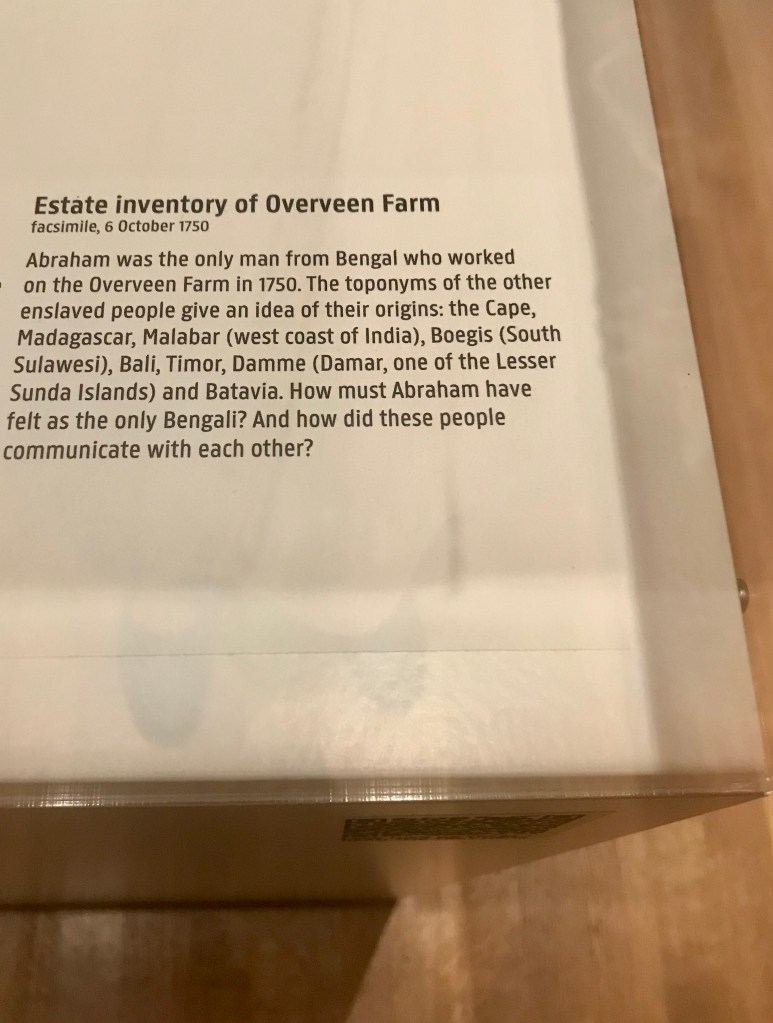
June is the month of Keti Koti in the Netherlands where many organisations will take part in the celebrations and display different kinds of activities such as commemorations, lectures, theatre performances and festivals to draw attention to the history of slavery in the Netherlands.
It began with the commemoration march in Amsterdam on 1 June and culminates with the National Remembrance Day for Slavery on 1 July where King Willem-Alexander is expected to make a speech at Oosterpark.
The phrase ‘Keti Koti’ means broken chains in the Surinamese language. And it symbolises the abolition of slavery on 1 July 1863 in the former colonies of Surinam and the Netherlands Antilles and marked the end of a dark period in the Dutch history.
I remembered standing before an exhibit at a slavery exhibition at the Rijksmuseum in Amsterdam, two years ago during the month of Keti Koti, and felt very moved as I read
“Abraham was the only man from Bengal who worked on the Overveen Farm in 1750. The toponyms of the other enslaved people give an idea of their origins: the Cape, the Madagascar, Malabar (west coast of India), Boegis (South Sulawesi), Bali, Timor, Damme (Damar, one of the Lesser Sunda Islands) and Batavia….”
My paternal side of the family has Bugis ancestry, otherwise written as Boegis in English or on the exhibit piece. Bugis were known to be strong traders but research has also shown that they were also the largest single ethnic group of slaves in the 18th century Batavia, the capital of the Dutch colony, and made up 25.8% of the slave population (Koolhof & Ross, 2005). It was a difficult piece of history for me to reconcile with at that point of time.
So, I’m happy that the month of Keti Koti is here again and that it is remembered in the Netherlands – where difficult conversations and topics are not swept under the rug but brought forth and even, celebrated.
If you would like to know more about Keti Koti, here are some links
A succinct summary in English about the month of Keti Koti: https://nltimes.nl/2023/06/01/keti-koti-month-kicks-commemoration-march-amsterdam
And if you can read Dutch, here is the official website of Keti Koti with all the dates of festivities and programmes: https://ketikotiamsterdam.nl/
Wishing everyone a wonderful weekend ahead.
#netherlands #dutch #ketikoti #amsterdam #slavery #history #internationals #expats
16/05/2023

Leiden came out #3 in a ranking list of the most attractive residential city in the Netherlands!
In a recent annual survey called Atlas for Municipalities, researchers take into account various factors such as the presence of high quality nature surroundings, work, cultural facilities, safety, catering and the presence of a university.
It is not a surprise that Amsterdam came out top and is the most attractive residential city followed by Amstelveen, Leiden and Utrecht. At the bottom of the ranking is Emmen.
According to researcher Marten Middeldorp, “We are not saying that you cannot live comfortably in Emmen. There is a lot of greenery and a beautiful zoo and it is relatively safe. But there are few jobs and facilities, and the culinary offer is also meager, all things that the average Dutch person finds attractive.”
So, if you are new to The Netherlands and still deciding which city to live in, this list might be useful for you:
The top ten most attractive cities to live in The Netherlands are
#1 Amsterdam
#2 Amstelveen
#3 Leiden
#4 Utrecht
# L’dam.-Vrbrg
#6 Hilversum
#7 Den Haag
#8 Rotterdam
#9 Haarlem
#10 Delft
While the 10 least attractive cities to live in are
#50 Emmen
#49 Sittard-Geleen
#48 Heerlen
#47 Venlo
#46 Almelo
#45 Hengelo (O.)
#44 Enschede
#43 Helmond
#42 Roosendaal
#41 Leeuwarden
A succinct summary in English about the survey can be found in this link: https://nltimes.nl/2023/05/24/amsterdam-still-popular-city-live-far-emmen-bottom-list
And if you can read Dutch, you can find more info at this link: https://www.nrc.nl/nieuws/2023/05/23/arnhem-is-de-aantrekkelijkste-stad-in-het-groen-en-blauw-a4165422#/krant/2023/05/24/%23102
Wishing everyone a wonderful weekend ahead!
Follow my blog at https://prokompas.com/blog/
#netherlands #dutch #statistics #cities
19/05/2023
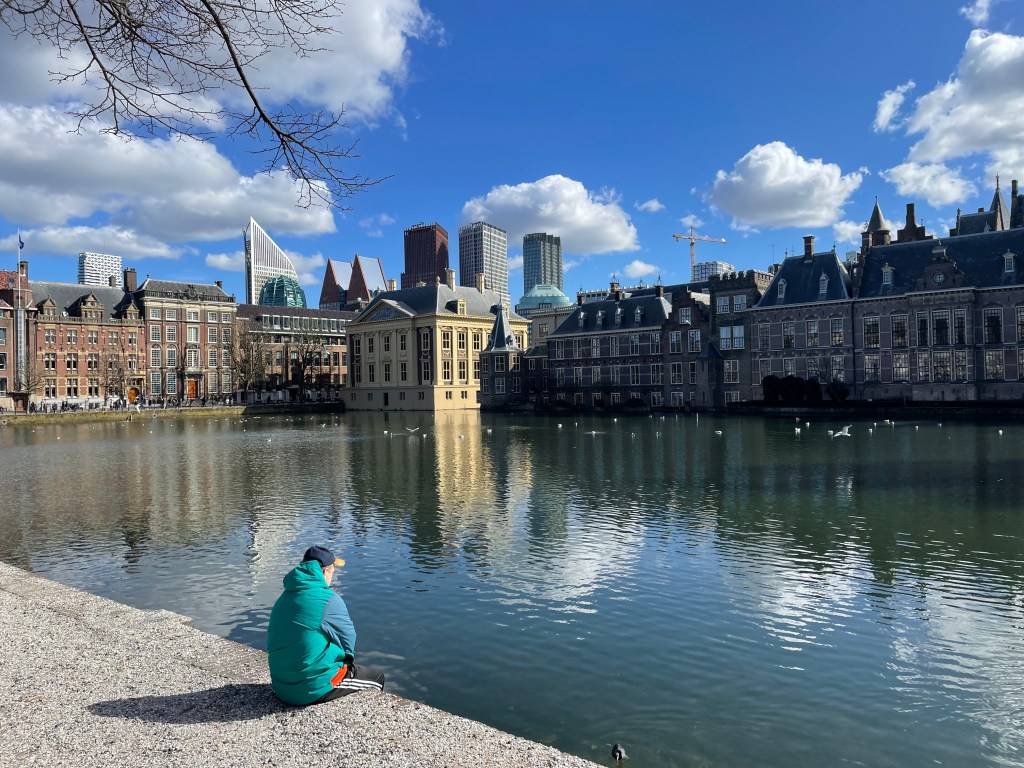
Understanding statistics is a good way to understanding life in The Netherlands.
And in recent news, the jarring numbers by CBS (Centraal Bureau voor de Statistiek) otherwise known as Statistics Netherlands, about the levels of general prosperity of young adults aged 25 – 35 in the country is a sobering one. According to them,
“People aged 25 to 35 have a lower overall wealth than people from other age groups. They lag behind in indicators of satisfaction in particular. Low-educated people and people who were not born in in the Netherlands or of whom at least one parent was not born in the Netherlands also have a lower general level of prosperity”.
Prosperity is more than the calculations of income and wealth. The indicators take into account factors such as health, well-being, labour market situation, trust and the quality of living environment.
If you can read Dutch, you can find more info on the statistics at this link by CBS: https://www.cbs.nl/nl-nl/nieuws/2023/20/brede-welvaart-jongvolwassenen-blijft-achter
Otherwise, a succinct summary in English can be found in this link: https://nltimes.nl/2023/05/17/young-people-immigrants-dissatisfied-dutch-life
#netherlands #dutch #statistics
13/05/2023
Mother’s Day is tomorrow and aren’t you curious of how it is celebrated here in the Netherlands?
Say Hello to a Dutchman with Chinese Heritage – Episode 5 of At The Crossroads
In this episode of At The Crossroads, our guest is Dutchman, Kawin Wu , a videographer, video strategist and owner to the production house, Kawin Wu Studio’s, in the Netherlands.
In this fun and eye-opening interview, he shares about his Chinese heritage and how this aspect influences his life as a Dutchman, the stories behind his work-travels around the world and his time studying in Japan.
And since he is Dutch, I also got him to enlighten us internationals on what are some Dutch activities like ‘afspraak maken’ (appointment-making) and ‘koopavond’ (purchase-evening), the drinking culture in the Netherlands and the important Dutch festivity ‘oud en nieuw’ (new year’s eve) that he loves which he and his family cleverly adapts with their Chinese culture.
And of course, with Mothers’ Day being tomorrow (14 May), I got him to share on how it is celebrated here in the Netherlands and spill the beans on what actually happens to Dutch fathers’ on that day.
And for all viewers, I hope you enjoy this video (as much as I did). Enjoy!
And to all mothers around the world – Have a great Mother’s Day tomorrow!
#intercultural #storytelling #culturaldifferences #netherlands #japan #china #hongkong #singapore #abroad #internationals #expats #dutch #chinese
28/04/2023
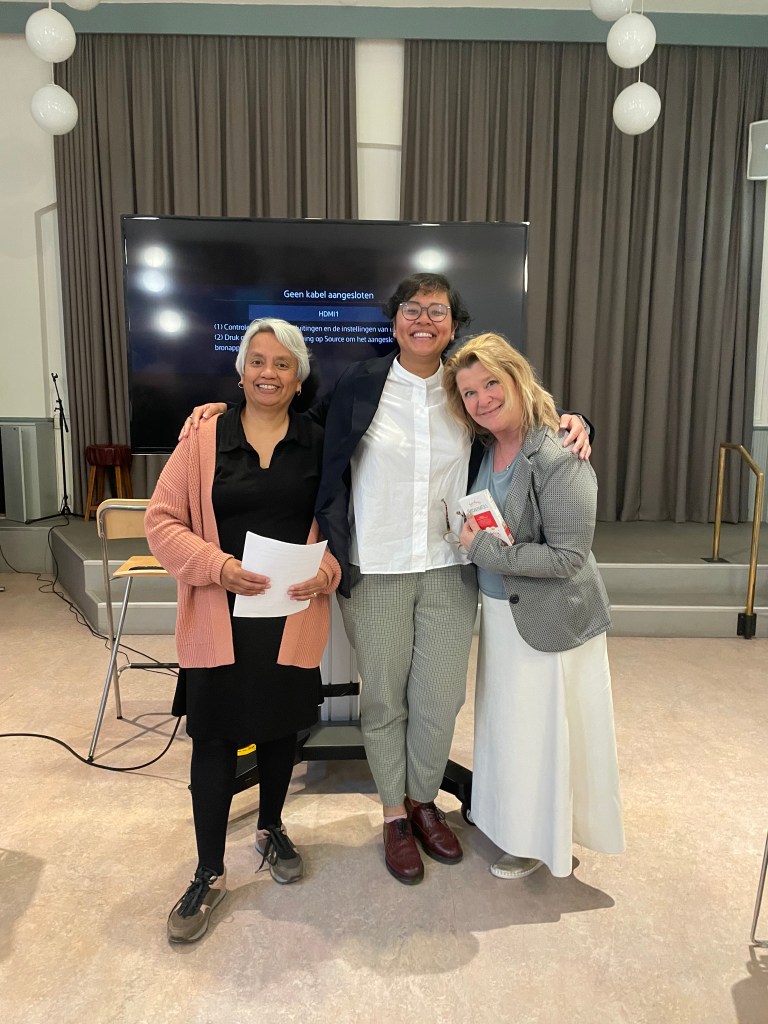


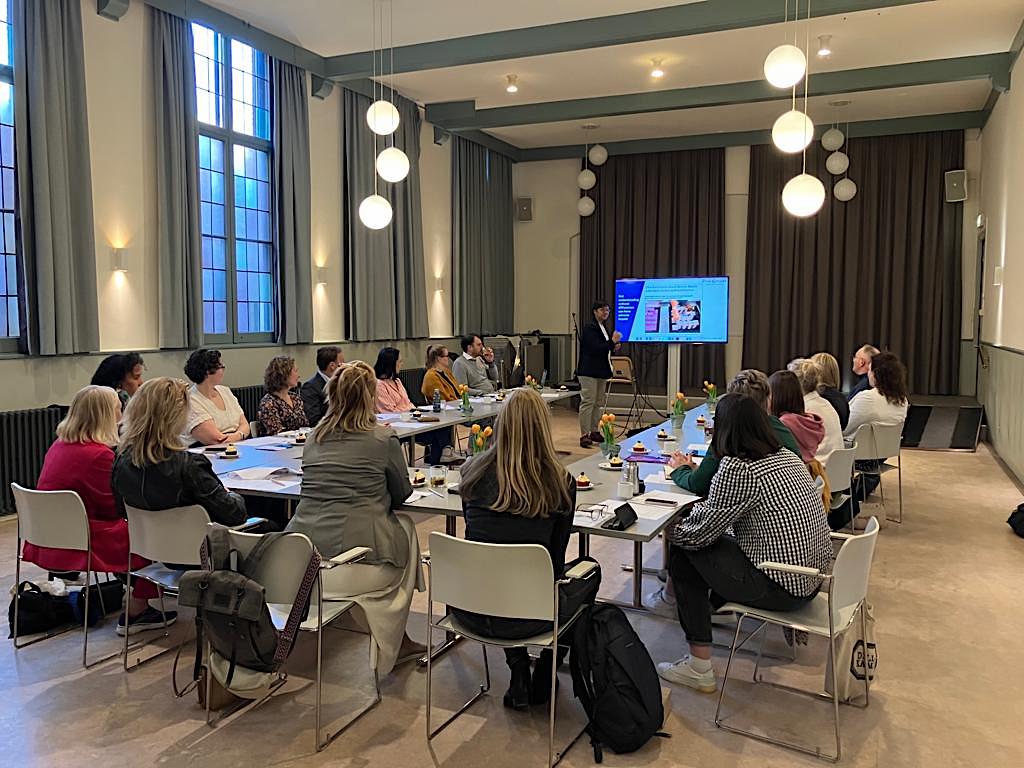
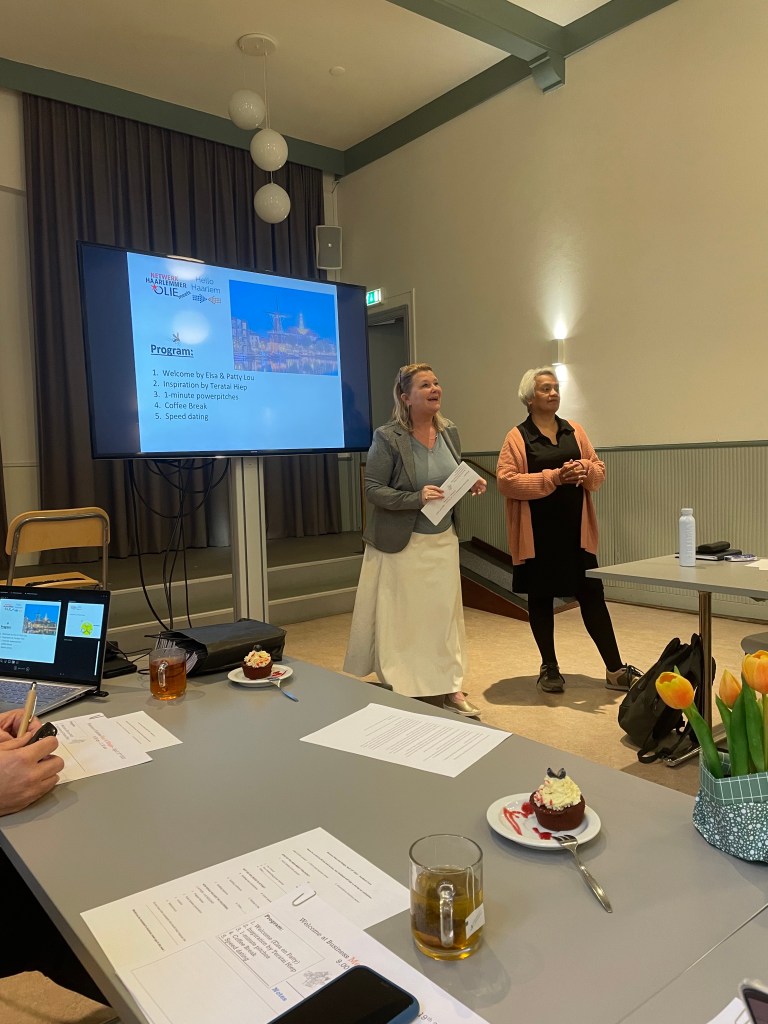

Thank you for having me as a guest speaker at your first International Business Meet & Mingle by Hello Haarlem x Netwerk Haarlemmerolie, last week!
As an intercultural trainer, it was my pleasure to be part of the entrepreneurial communities in the city of Haarlem and speak on the important cross-cultural challenges of conducting business beyond borders.
As one participant shared with me of their learning after my presentation:
“It’s better to understand others first, before trying to make yourself understood”
I am delighted to have been part of the event and wish everyone I had met success in their businesses.
Wishing everyone a lovely Friday! 🙂
credit: Some photos are by Hello Haarlem & Elsa Wattamurij
#interculturalcommunications #business #netherlands #intercultural #communications #english #training #culturaldifferences #dutch #events #entrepreneurs #expats #international #haarlem #leiden #networking
21/04/2023
It has been an incredibly busy but wonderful week and what better way to cap it off by releasing!:
Growing up Dutch in Thailand – Episode 4 of At The Crossroads
One week from today is the celebrations of King’s Day in the Netherlands and we can hear all about it from our Dutch guest, Michael Hoppe, a senior policy advisor for national security at the Ministry of Education, Culture and Science in the Netherlands.
In this light-hearted and frank interview, he delightfully shares about King’s Day and the royal families, the challenging and wonderful parts of growing up in different countries and especially in Thailand where the Dutch embassy played a key role in the overseas Dutch community, his feelings of being a foreigner and funny memories of repatriating back to the Netherlands for college.
An alumni of the International School of Bangkok, he does a quick assessment on the differences between the international and Dutch school systems.
Not wanting to miss out on this golden opportunity, I ask him hard questions like “Are the Dutch really rude?”, “Are the Dutch hard to make friends with?” and all sorts of other general ideas and misconceptions of the Dutch and the Netherlands. I hope you enjoy the episode!
I will also like to take this time to wish all our Muslim friends and families from around the world a wonderful Eid Mubarak and Selamat Hari Raya! Have a wonderful celebration, everyone!
#intercultural #storytelling #culturaldifferences #netherlands #thailand #singapore #abroad #internationals #expats #dutch
14/04/2023
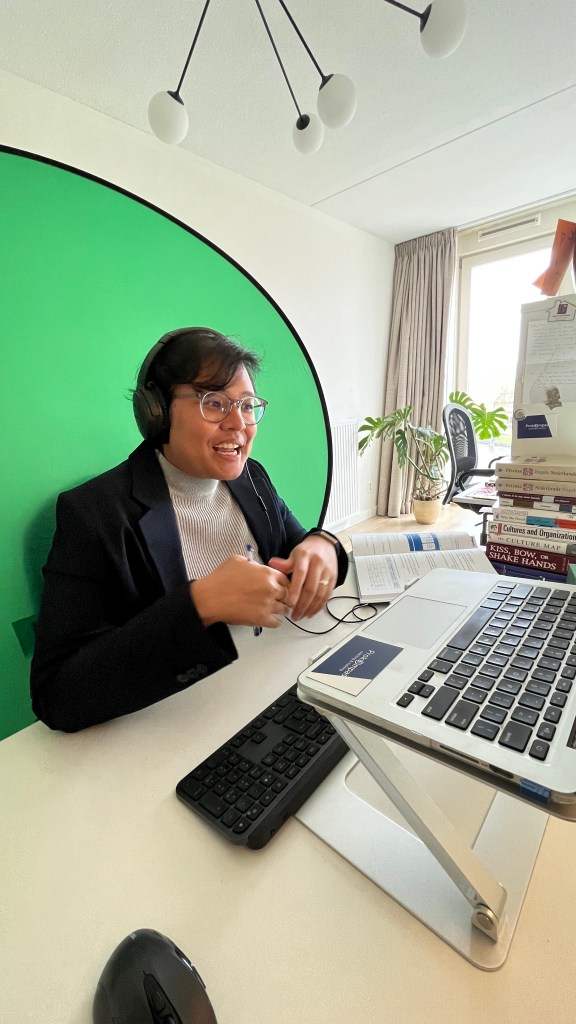
This has been a wonderful month of gratefulness, sharing and with a special attention on business owners in the Netherlands and internationally.
I am proud to play a big part in these events taking place next week as a guest speaker (19 April), facilitator (20 April) and creator (21 April).
19 April, Guest speaker at the very First International Business Meet & Mingle Networking Event by Hello Haarlem
As guest speaker, I am very much looking forward to speaking on the intercultural aspects of doing business with the participants and connecting with them! Held for the very first time in the beautiful city of Haarlem, this in-person event creates and expands the business networks of both the Dutch and International business owners in the city. If you are in Haarlem and will like to catch me in action, be part of this event and join us.
20 April, Facilitator at the Spring Business Quarterly by Families in Global Transition
Spanning 1.5 hours, I will be facilitating and conducting a live interview during this special virtual event for the business members of FIGT, a well-known international organisation in the intercultural field. Business owners from across the globe will be connecting live with each other! If you are a business member of FIGT, do come and have a good time with us.
21 April, Episode 4 of At The Crossroads – Growing Up Dutch in Thailand – will be released
At The Crossroads is my baby – a video serie that I created, where I conduct interviews with internationals and locals in The Netherlands. It captures the experiences of us who moved countries, far away from family and friends and at the same time, builds connections with the locals in the Netherlands. Next week’s episode is big for me as it is the very first episode (but definitely not the last) where a locals’ perspective, a Dutchman, is captured – it is light-hearted, honest and if you can’t catch me in the first two events (on-site and virtual) above, this can be for you.
You can catch previous episodes of the serie on my website: https://prokompas.com/video-series/
Wishing everyone a lovely weekend ahead!
#interculturalcommunications #business #netherlands #intercultural #communications #english #training #culturaldifferences #dutch #events #entrepreneurs #expats #international #haarlem #leiden
07/04/23
This week at my English Language Training for The Dutch (Intermediate level), we tackled the differences between literal and correct translations in intercultural communications.
This is an important component in intercultural communications as it affects how different groups of people and cultures can communicate with each other; be it in daily life or in work and business.
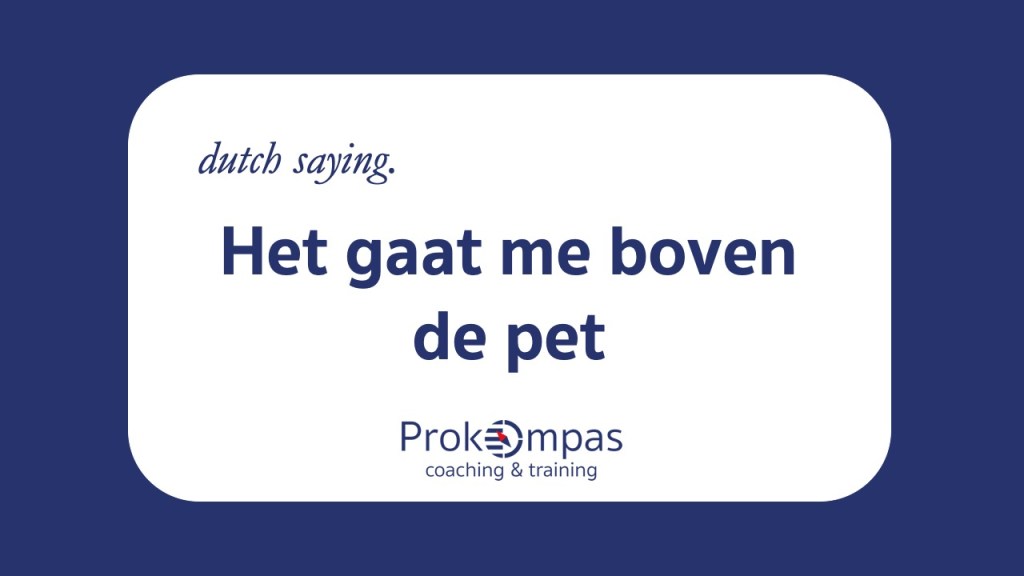
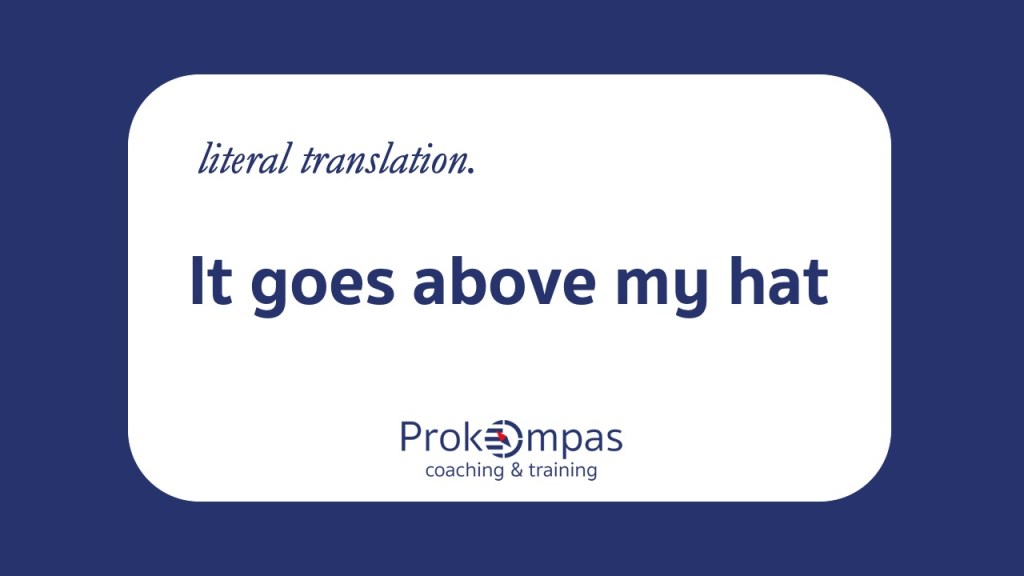
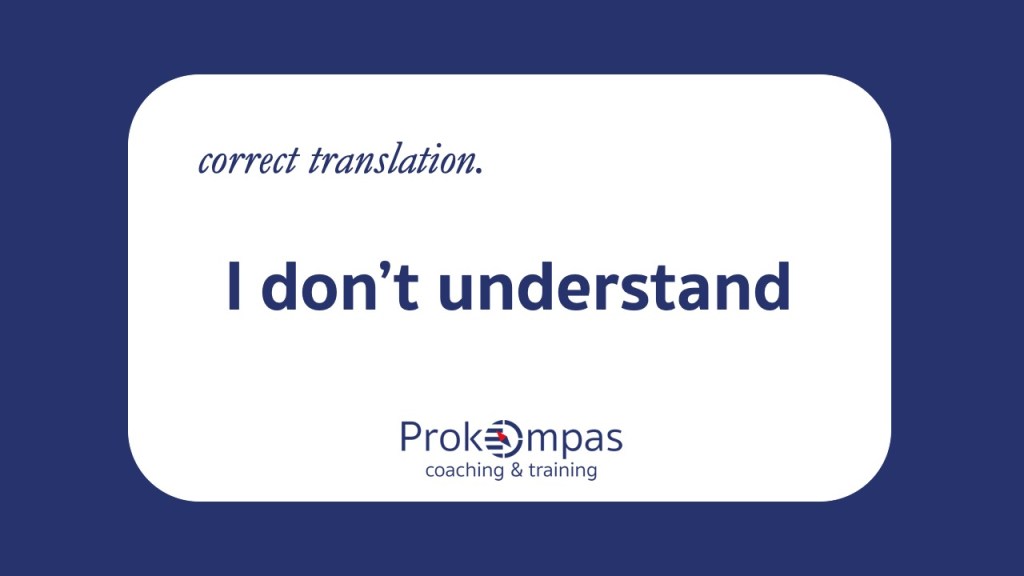
With a basic understanding of English grammar and words, anyone can easily translate their own language into English. However, literal translations of words do not work every time as it does not consider context and social norms.
Correct translations always involve context and social norms.

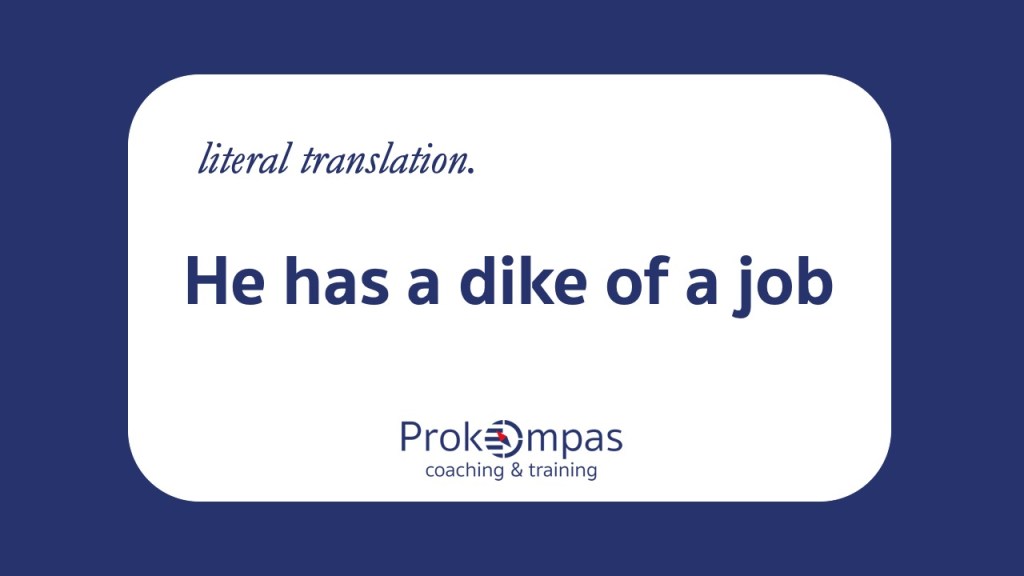
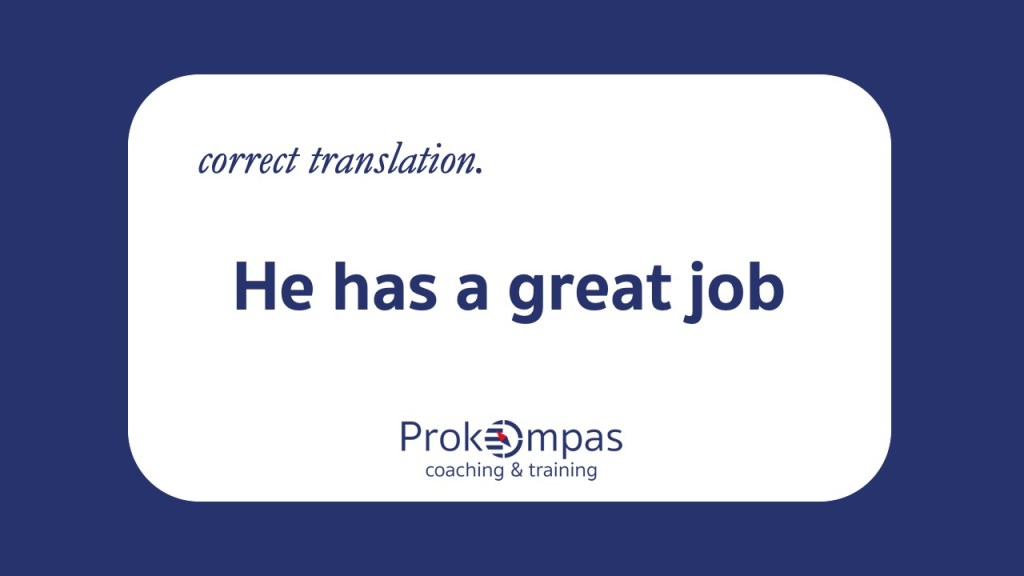
If you are an international working here in The Netherlands and had come across such dutch sayings, this will give you a glimpse of the right translations of some of the local sayings!
And if you are Dutch and and love sprinkling spreekwoorden (proverbs) in your conversations, perhaps these photos might make you smile a little.

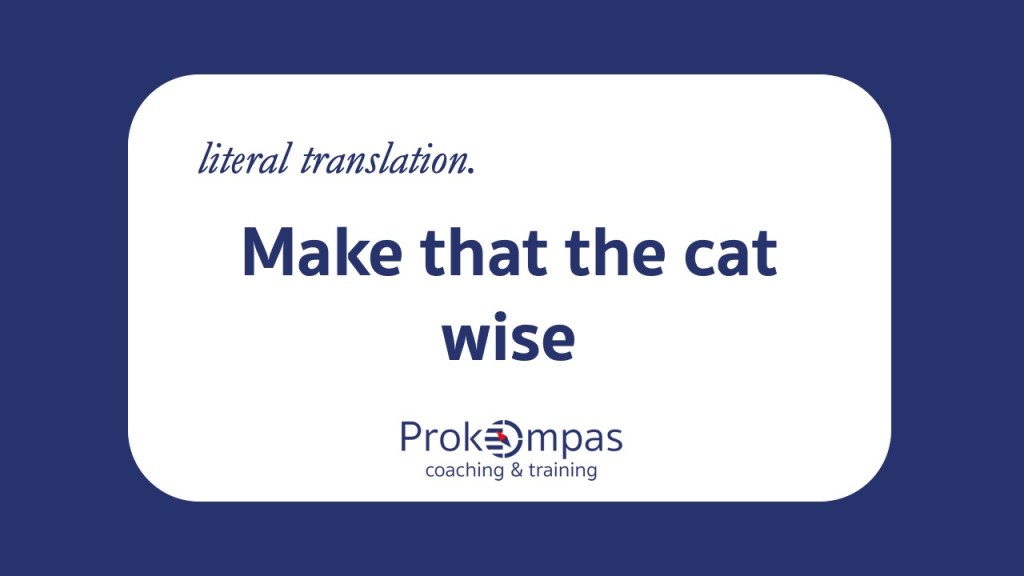
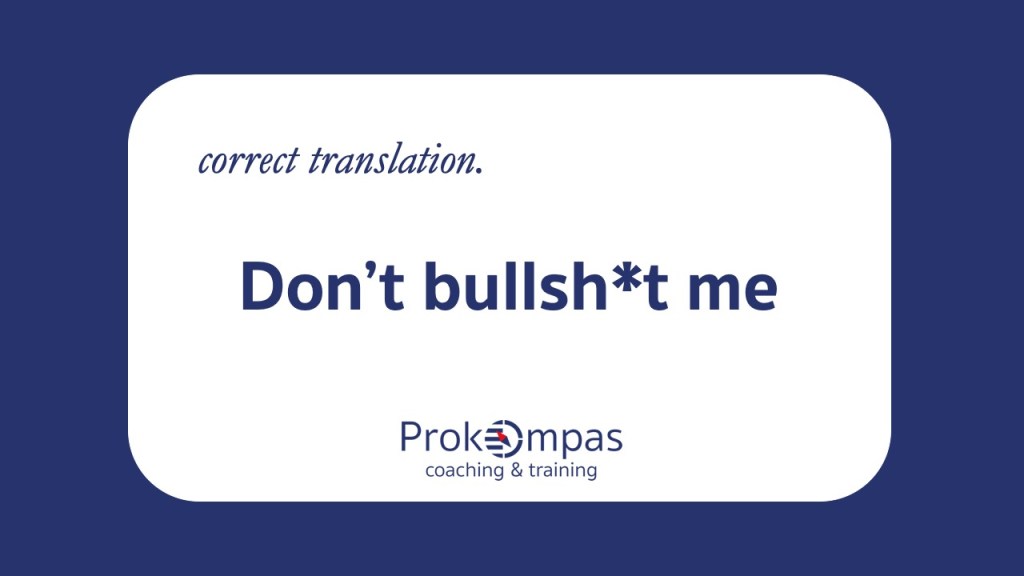
What other sayings have you come across or used?
Wishing everyone a lovely weekend ahead.
#interculturalcommunications #business #netherlands #intercultural #communications #english #training #culturaldifferences #dutch #ESL #translations
31/03/2023
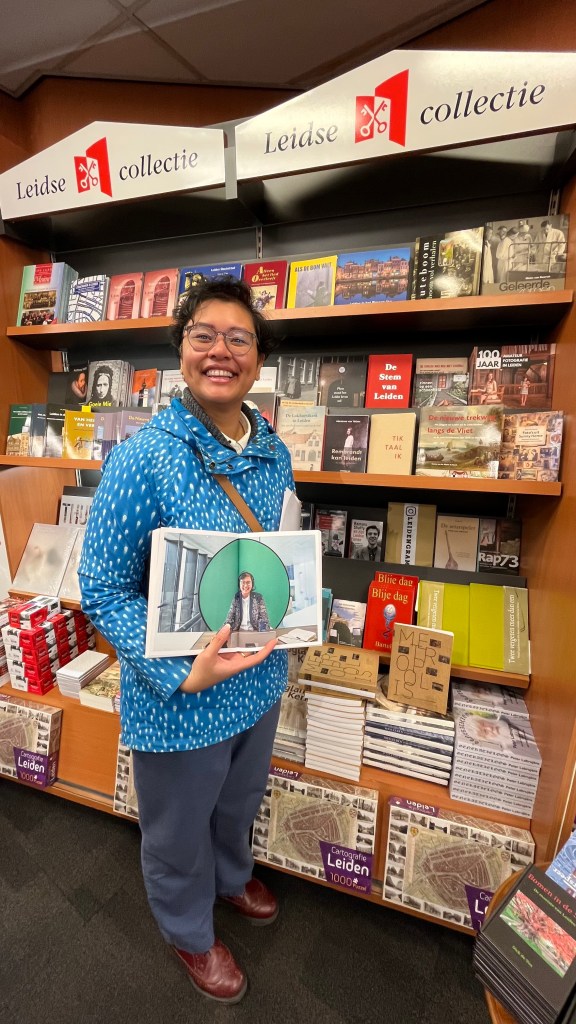
As an intercultural trainer, I am often looking for new materials to improve my trainings. So, in preparation for an upcoming training, I went to bookstores and chanced upon a very nice surprise this week.
The book, Metropolis: Leiden, by Koen Suidgeest, is out in bookstores! What an achievement!
The book captures the diverse stories of 52 internationals from 52 countries who have lived, worked, studied and build businesses here in our beloved city of Leiden. They are written beautifully in Dutch and English. And I am lucky to be featured as one of the stories.
It is a surreal and indescribable feeling to find the book with your story and face in it and in your favourite bookstore (De Kler on Breestraat).
And that feeling amplifies as you realised that the book is featured as part of the Leiden City Collection (Leidse collectie). Words are just not enough to write down this feeling.
It has been a great week for this intercultural trainer and I wish everyone a magical weekend too!
#books #interculturalcommunications #business #netherlands #intercultural #communications #english #singapore #training #culturaldifferences #dutch
24/03/2023
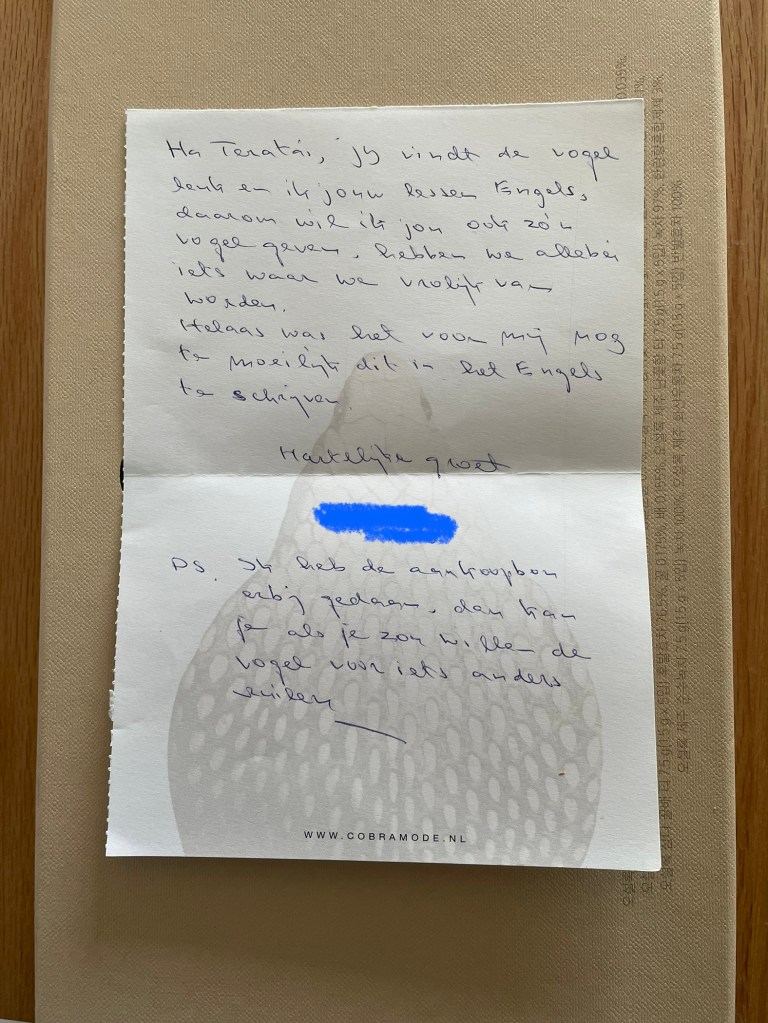
Not too long ago, I had written about the art of giving feedback across cultures based on the Evaluating scales from The Culture Map by Erin Meyer (2014).
And recently, I found myself in the seat of receiving feedback from a Dutch client when a letter and a gift of a bird figurine arrived at my office. As a “birder” (birdwatcher or a ‘vogelaar’ in Dutch), I was intrigued. The letter reads as so in English:
———–
Hi Teratai, you like the bird and I like your English lessons, that’s why I want to give you such a bird, we both have something that makes us happy.
Unfortunately it was still too difficult for me to write this in English.
Sincerely,
Client’s name
PS I have included the purchase receipt, so that you can exchange the bird for something else if you wish
———–
Concise and to the point. And its contents echo what has been written in The Culture Map. According to its Evaluating scales, the Netherlands is almost at the end of the scale together with other countries like Israel and Russia in the area of giving direct, (negative) feedback. At this end, if one has to give (negative) feedback, it is provided frankly, bluntly and honestly and it is not necessary to soften it with positive ones. This is seen as honest and not impolite.
On the other end of that scale, lies countries like Japan, Thailand and Indonesia. Cultures which are similar to where I come from – Singapore. At this end, feedback especially negative ones are provided softly, subtly and diplomatically. Often times, positive messages are wrapped around negative ones. This is seen as polite.
Another cultural delight to be noted of from this is that in the Netherlands, it is not rare for a gift to be given with the receipt. This is a considerate gesture and seen as polite as it gives the receiver the option to exchange the gift for something else that she/he prefers.
In this case, there was no need for that at all for this birder.
#interculturalcommunications #business #netherlands #intercultural #communications #english #ESL #singapore #training #culturaldifferences #dutch
17/03/2023
Presenting Episode 3 of At The Crossroads!
In this episode, we have Sangeetha Kirsnan (@ Sangeetha Kirsnan) who from being a teacher from Singapore has gone on to live, work and create her own businesses in Australia and the United States in the last 7 years. A heartfelt conversation over the anxieties of living abroad and building lasting friendships, the misperceptions of being a teacher, a person of colour and being of someone from Singapore, and finally about advocating for yourself as not only a means to survive but also thrive in foreign lands. Enjoy!
At The Crossroads is a serie that captures the experiences of internationals who moved countries, far away from family and friends. Many of us may have different ideas of what it is like to uproot oneself, so it is time to hear their rich and unique stories from them.
Brought to you by Prokompas Coaching & Training
#intercultural#storytelling#business#culturaldifferences#poc#netherlands#singapore#australia#US#abroad#internationals#expats
10/03/2023
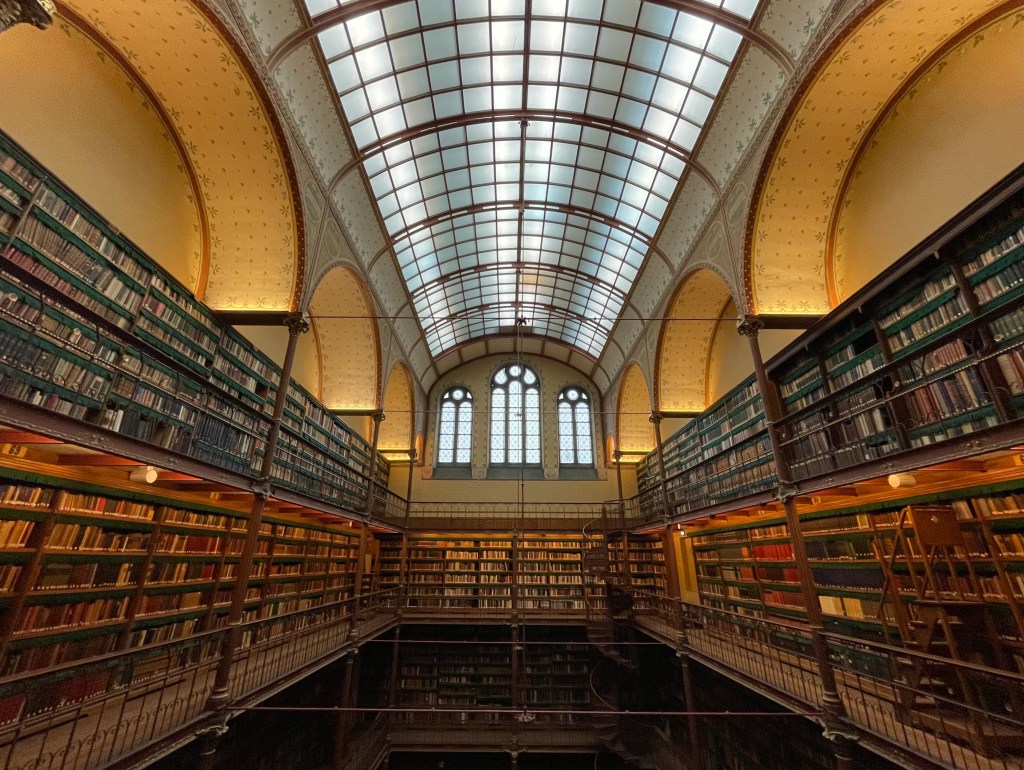
In my English language training for the Dutch with my clients here in The Netherlands, I came across a delightful, cultural difference that appeared repeatedly over the last months – the art of giving feedback.
Like clockwork, at the end of each session, my Dutch clients from different, private sessions would directly ask me for my feedback on their progress or work during the session itself.
“Ben je tevreden?” (Are you satisfied?), they would ask me.
At first, I was surprised by this. As a former long-time classroom teacher from Singapore, I prided myself about always being consistent and timely in giving feedback to my students back in my country of origin – correcting their wrong answers with them, nodding and smiling every time they could enunciate the words properly and verbal comments or praise on their work are given at the right and opportune time.
But as an intercultural trainer now, I realised quite quickly that coming from a higher-context culture of Singapore as compared to The Netherlands, the way I communicated my feedback may not have been as clear as I once thought. It is likely that I may have come across as rather hard to read or even aloof to my Dutch clients.
Based on the Evaluating scales from The Culture Map by Erin Meyer (2014), The Netherlands is almost at the end of the scale together with other countries like Israel and Russia in the area of giving direct, (negative) feedback. At this end, if one has to give (negative) feedback, it is provided frankly, bluntly and honestly and it is not necessary to soften it with positive ones. This is seen as honest and not impolite.
On the other end of that scale, lies countries like Japan, Thailand, Indonesia. Cultures which are similar to where I come from – Singapore. At this end, feedback especially negative ones are provided softly, subtly and diplomatically. Often times, positive messages are wrapped around negative ones. This is seen as polite.
Giving feedback across cultures can be quite an art form as it is important to find the balance to what the person(s) across from you from another culture needs and what you are comfortable with. That is not an easy task.
Now, before I end my sessions and before my clients jump in, I make sure to round it off with
“I am satisfied with your work today…” or “This is an area that needs to be improved on…”
Prokompas Coaching & Training
www.prokompas.com
#interculturalcommunications #business #netherlands #intercultural #communications #english #ESL #singapore #training #culturaldifferences #dutch
03/03/2023
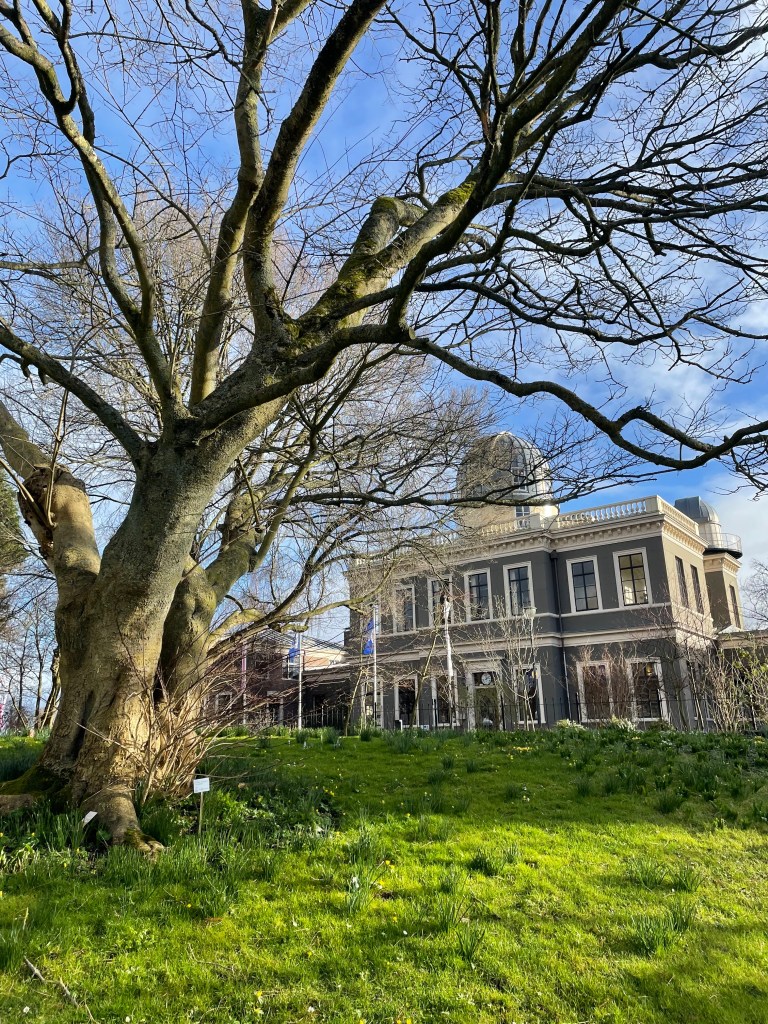
This week is the start to the meteorological spring in The Netherlands and what better way to celebrate this than to appreciate poetries on this Friday morning.
The Netherlands and Japan are on the opposite ends of the spectrum between low-context and high-context communications according to The Culture Map by Erin Meyer (2014). The first preferring precise and clear mode of delivery while the latter preferring a layered and nuanced form. And this can be seen in the way poetries are written over centuries as well.
The following English-translated poem and haiku are by famous Dutch & Japanese poets: J.C. Bloem (1887 – 1966) and Masaoka Shiki (1867 – 1902)
I hope you enjoy them.
#interculturalcommunication#poetry#netherlands#japan#training#businesscommunication#culturaldifferences
————————–
Early Spring Eve
The unread book fell beside him;
He stroked the eyes with a vague hand,
And looked outside: the first spring weather
Enchanted the twilight land.
There was a haze of the initial foliage
For the separate, black wood,
And something like sweetness floated over the evening,
But where the wind beat its wing it was cold.
The springs went and the springs come;
The world is an imperishable place,
To which the hearts, once taken,
Do not dodge more than through the one gate.
Then why forget oneself in dreams?
Leave the book unread. Who cares?
There is only one thing we know for sure:
May spring never return to us.
J. C. Bloem
————————–
A spring evening;
What is the bachelor
Reading?
SHIKI
24/02/2023

Being part of an intercultural training, it is almost for certain that one will be taught on the differences in low-context and high-context communications. Where good communication in low-context requires precise, simple and clear mode of delivery; good communication in high-context is sophisticated, nuanced and layered.
In The Culture Map by Erin Meyer (2014), The Netherlands and Japan are on the opposite ends of this spectrum.
This week, my Dutch clients and I bonded over our love for haiku – the classic Japanese poetry dating from the 17th century and where messages are often implied but not plainly expressed. We may have our own interpretations of the poems but we can agree that the way it is written and communicated can make one pause and ponder.
I hope you enjoy the following 3 haiku on this hopefully, reflective wintery Friday:
Among the winter trees
When the axe sank in –
How taken aback I was at the scent.
BUSON
Resigned to death by exposure
How the wind
Cuts through me.
BASHŌ
I could eat it!
This snow that falls
So softly, so softly.
ISSA
Prokompas Coaching & Training
#interculturalcommunications#business#netherlands#japan#intercultural#communications
13/02/2023
The second episode of At The Crossroads by Prokompas Coaching & Training is out!
“Reinvention is Key as a Mid-Career Professional Abroad”
In this episode, we have Anuar Shafiei from Malaysia, an events manager from ASTP who followed his dreams of studying abroad and has been in the Netherlands for more than a decade now.
Already well-established as a professional back in his home country before moving to the Netherlands, Anuar found himself having to reinvent and adapt quickly to get ahead in his new cultural environment. A story of overcoming language, job market barriers and managing expectations – of never giving up!
Thank you Anuar for sharing your story!
“At The Crossroads” is a monthly video serie where I chat with fellow internationals and strive to capture their rich and unique experience of moving away from their home countries and their beloved family and friends. Many of us may have different ideas of what it is like to uproot oneself and begin life anew somewhere else, so it is time to hear their stories from them.
I hope you enjoy the video!
#interculturalcommunication#internationals#expats#abroad#midcareer#professionals#dutch#netherlands#malaysia#jobs#culture#business
Write to teratai@prokompas.com if you have an interesting story of moving countries or know of someone – I would love to hear from you!
03/02/2023
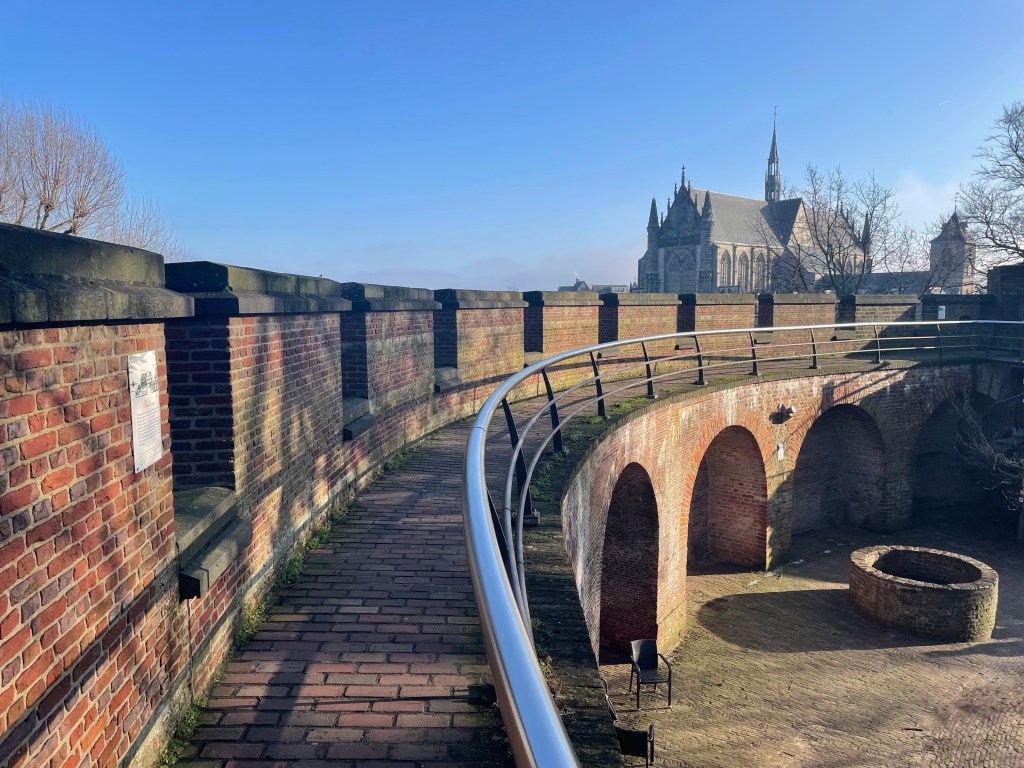
Even while practising grammar rules and speaking English with more confidence, my clients and I had a wonderful discussion about gestures, and in particular about eye contact, this week.
“In the Netherlands, direct eye contact is important!” shared one of my clients
“But, did you also know that from where I come from (Singapore), prolonged, direct eye contact could be interpreted as you wanting to pick a fight with me?”
“Oh! I didn’t know that at all!”
– insert some intercultural training here – 🙂
Learning an international language such as English can provide one with access to different cultures and its varied groups of other types of English speakers as well. It is a wonderful way to connect and also, create business opportunities across borders.
However, it can also be complimented with an understanding of how other cultures can react differently with their gestures. Having an intercultural understanding of this, inevitably, create better communication and avoid future culture clashes!
So, to my Dutch speakers:
Wilt u Engels leren? Leer het bij mij!
Prokompas Coaching & Training
#interculturalcommunication#training#esl#netherlands#dutch#businesscommunications#language#translation#english

01/02/2023
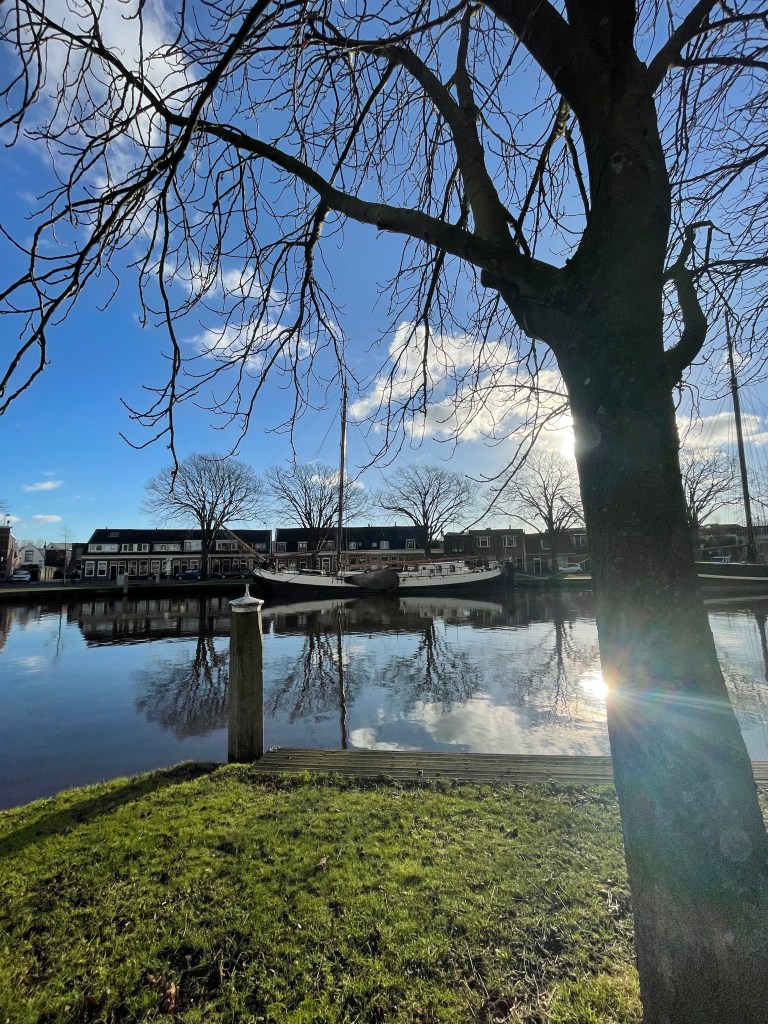
The waters may look calm and serene here in The Netherlands. But once upon a time, water was the fearful enemy of many in the country.
Today, 1st February 2023, marks the 70th year anniversary of the Great Flood of 1953 in The Netherlands.
A natural disaster where 1,836 people were killed in Zeeland, South Holland, North Brabant and North Holland and 150,000 hectares of land flooded and thousands of homes destroyed, 70 years ago. Despite the immense devastation, a sense of great resilience arose amongst the Dutch to overcome such future disasters and to live and manage water actively. This resulted in the construction of the country’s largest flood defence system – the Delta Works.
There are, of course, documentary series, daily short news broadcasts and commemoration ceremonies going on in NL in the past weeks and especially, today.
And below is a link to a sweet, relatable piece of news that marked the bravery of everyone and especially the animals on that fateful day – in particular about a heroic dog named Bläsz. Enjoy!
https://nltimes.nl/2023/01/26/hero-dog-tragic-1953-flood-honored-statue
Prokompas Coaching & Training at http://www.prokompas.com
#historicalevent#interculturalcommunication#history#netherlands
27/01/2023
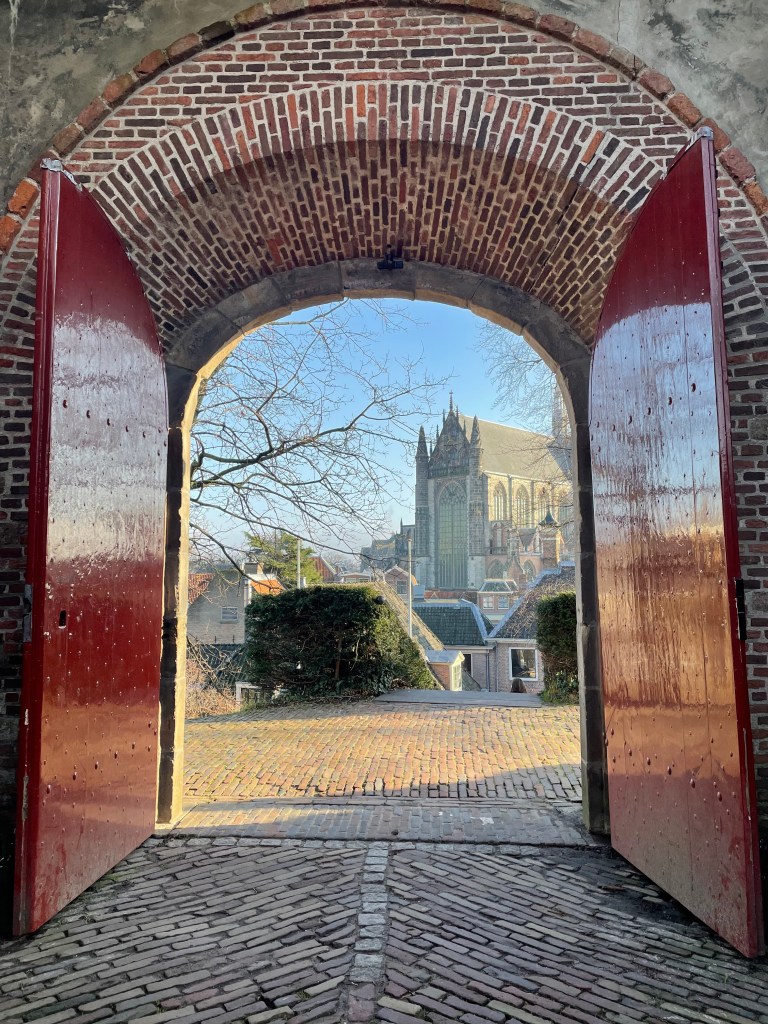
“I speak ‘steenkolenengels’”,
laughed one of my clients embarrassedly, this week at my English Language Training for the Dutch course Prokompas Coaching & Training
‘Steenkolenengels’, otherwise translated as ‘Coal English’, is a term to describe the English spoken by Dutch speakers who have insufficient command of the English language. The term has its history in the hybrid language used around 1900 by Dutch dock workers to communicate with the coal boat crews from UK. I find it amazing and amusing that this term ‘steenkolenengels’ has about 120 years of history!
Contrastingly, in the recent EF English Proficiency Index, the Dutch came out top for having the best English-language skills in a country where English is not the native language. Since its first edition in 2011, the Dutch has been in the top three positions and since 2019, the Dutch proudly ranked first, the cream of the crop, as the best non-native English speakers.
However, examples of ‘steenkolenengels’ do make an appearance from time to time and it is generally seen as amusing. Louis van Gaal, football coach extraordinaire, is a famous example of someone who regularly use ‘steenkolenengels’ as he peppered his English media interviews with phrases like ‘The dead of the gladiols’, ‘it’s again the same song’ and ‘we are running behind the facts’.
To non-Dutch speakers, these examples may sound strange but these phrases have its roots in Dutch proverbs. Take for example ‘The dead of the gladiols” – it is the literal translation of the Dutch proverb “De dood of de gladiolen” which when translated sufficiently (and not literally) means it will be either a failure or a glorious victory OR it’s all or nothing. A wonderful expression to describe his football team’s efforts to go for the win.
Learning a language requires a certain degree of embracing failures and making mistakes. So, I don’t mind ‘steenkolenengels’ – I see it as first steps to becoming proficient English speakers with practice and right guidance.
So, to my Dutch speakers:
“Spreekt u ook steenkolenengels? Geen zorgen, met mijn hulp bent u op de goede weg!”
#interculturalcommunication#training#esl#netherlands#dutch#businesscommunications#language#translation

20/01/2023
Hello everyone, I am very pleased to present the very first episode of “At The Crossroads” by Prokompas Coaching & Training!
“At The Crossroads” is a monthly video serie where I chat with fellow internationals and strive to capture their rich and unique experience of moving away from their home countries and their beloved family and friends. Many of us may have different ideas of what it is like to uproot oneself and begin life anew somewhere else, so it is time to hear their stories from them.
In this very first episode, we have my good friend, Fran L, Fran a medical professional from Singapore who packed her bags 5 years ago to The Netherlands to reunite with her Dutch partner. A story of overcoming challenges, language and food barriers, AND working at the frontlines of the Covid-19 pandemic!
Thank you Fran for sharing your experience!
As the Chinese New Year is also around the corner, I will also like to take this opportunity to wish an early Gong Xi Fa Cai to all of you. Have a prosperous new year!
I hope you enjoy the video!
#interculturalcommunication #internationals #expats #abroad #COVID19
If you have an interesting story of moving countries or know of someone, I would love to hear from you – write to me at teratai@prokompas.com
13/01/2023

“Hello!”
“Hoi!”
“Oi!”
They are all greetings in different languages and suitable for different contexts, as my new client this week for “English Language Training for the Dutch” Prokompas Coaching & Training course found out on a recent travel to a big city in Asia (Singapore!)
“Hoi” is a casual greeting in The Netherlands which is equivalent to “Hello” or “Hi” in the English language. In the towns and villages here, it is common to say a quick “Hoi” to strangers that you meet while out on a walk and even, to the bus driver when using public transport. In the cities, it is less common to greet others on the streets but this casual way of greeting can come through, especially if they are performing some kind of service for you. So, do not be surprised when the cashier says “Hoi” or “Hello” to you and wishes you a nice day ahead after the transaction! This casual greeting of others is a way of life and can become a natural reaction.
However, during travels to other countries, saying “Hoi” to others can lead to unexpected miscommunications and unfortunately, experiencing unpleasantness. This is so as the pronunciation of “Hoi” sounds very similar to the colloquial phrase of “Oi” in Singapore.
And in the Singapore context, “Oi!” is a Singlish (colloquial English by locals in Singapore) phrase used in a mostly unfriendly situation. So, if you are angry with someone, you’ll use it as “Oi! What are you doing!?” as part of a reprimand. It is the direct opposite to the usage of “Hoi” in The Netherlands.
So, imagine the kind of reactions that one would get if one had misused “Hoi” in a foreign context like Singapore despite the sincerest intention of greeting the locals? You guessed it. A lot of angry, confused and annoyed stares from the locals. An episode of intercultural (mis)communication.
So, let’s stick to “Hello” for a more universal way of greeting others especially in English-speaking countries 😉
#interculturalcommunication #training #esl #netherlands #dutch #businesscommunications #language #travel #singapore
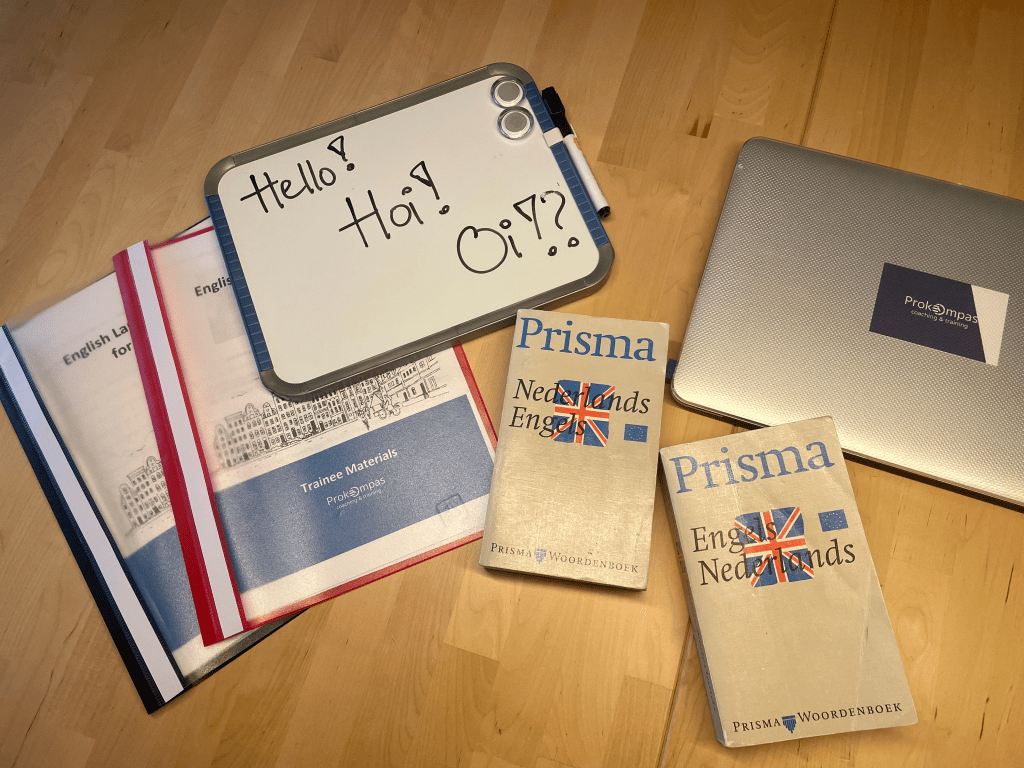
06/01/2023
Week 1 of 2023 and my new course “English Language Training for the Dutch” at Prokompas Coaching & Training is in full speed!
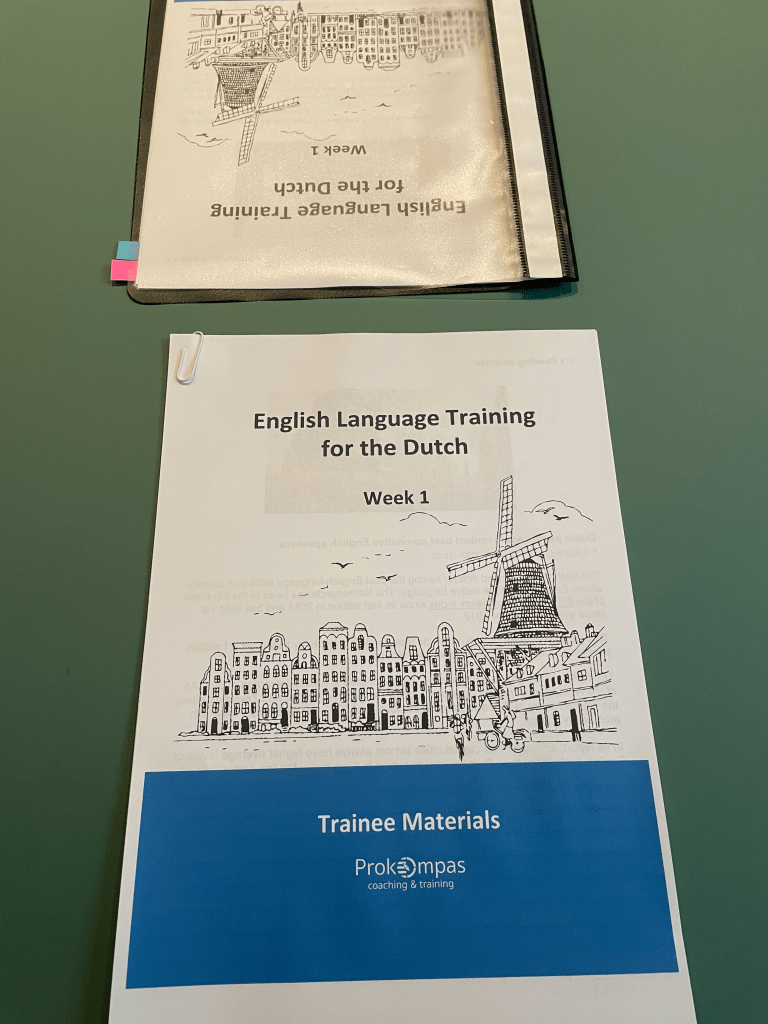
Intercultural communications is a skill highly needed in today’s workforce especially when communicating in English as a second language. A delightful conversation ensued when we discussed about the types of questions to ask when you meet an international for the first time in a networking setting and the difference between
“What are you doing?” VS “What do you do?”
Both are grammatically correct but they function differently.
“What are you doing?” is a question asking about the action of the person at that very point of time. With just a slight adjustment to the intonation, it can function as a reprimand and you might offend someone, if you use this question unknowingly. For example, if you see someone stealing your bicycle – you can say angrily “What are YOU doing?!” This question therefore do not function as well when you meet an international for the first time, especially in a networking setting.
In contrast, “What do you do?” is a question that relates to career. So, in a networking setting where you would like to create connections within or outside of your industry, this question is definitely appropriate!
Looking forward to more of such delightful conversations with my dutch clients in the next months!
#interculturalcommunication #training #esl #netherlands #dutch #businesscommunications
